


































PIcasso Headline, a proud division of Arena Holdings (Pty) Ltd
Hill on Empire, 16 Empire Road (cnr Hillside Road), Parktown, Johannesburg, 2193 PO Box 12500, Mill Street, Cape Town, 8010 www.businessmediamags.co.za
EDITORIAL
Editor: Ryland Fisher
Content Manager: Raina Julies rainaj@picasso.co.za
Contributors: Matthew Hirsch, Tamsyn Jacobs-Wort, Prof Jonathan Jansen, Prof Thuli Madonsela, Dan Mafora, Lawson
Naidoo, Ulpha Robertson, Lisa Witepski
Copy Editor: Brenda Bryden
Content Co-ordinator: Natasha Maneveldt
Digital Editor: Stacey Visser vissers@businessmediamags.co.za
DESIGN
Head of Design: Jayne Macé-Ferguson
Senior Designer: Mfundo Archie Ndzo
Junior Designer: Bulelwa Sotashe
Cover Images: istock.com/ Byron Sullivan, istock.com/ fivepointsix, supplied
SALES
SALES Project Manager: Tarrin-Lee Watts wattst@picasso.co.za | +27 87 379 7119
+27 79 504 7729
Sales: Frank Simons
PRODUCTION
Production Editor: Shamiela Brenner
Advertising Co-ordinator: Shamiela Brenner
Subscriptions and Distribution: Fatima Dramat | fatimad@picasso.co.za
Printer: CTP Printers, Cape Town
MANAGEMENT
Management Accountant: Deidre Musha
Business Manager: Lodewyk van der Walt General Manager, Magazines: Jocelyne Bayer
Many people are fighting for social justice in South Africa. Some, such as former Public Protector Professor Thuli Madonsela, wage the battle in academia in her role as director of the Centre for Social Justice at Stellenbosch University and Law Trust Research Chair Professor in Social Justice. Others, such as Lawson Naidoo, fight for social justice by using the courts and basing his arguments on the Constitution. Naidoo heads up the Council for the Advancement of the South African Constitution, about which he is passionate. Others, such as Zackie Achmat, fight for social justice wherever he encounters injustice, whether in the health sector, especially regarding the rights of people who have contracted HIV/AIDS, education sectors or on the streets. Achmat, the powerhouse behind many of the nongovernmental organisations formed since our country became a democracy almost 30 years ago, intends to take his fight to Parliament next year. He is standing for election as an independent in next year’s elections.
In this publication, we find out what each of the aforementioned are doing in their respective fields. Each one brings a unique perspective and a tireless commitment to fighting social injustice.
But we go beyond the high-profile social activist and also look at the work done by Ulpha Robertson and Yabonga, the organisation she formed 25 years ago to fight for the rights of young children and mothers with HIV. They have quietly done good work among some of the most vulnerable in our society.
We also look at the government’s dilly-dallying about making military land available for housing in Cape Town, a move that could significantly relieve the shortage of low-cost housing in the city.
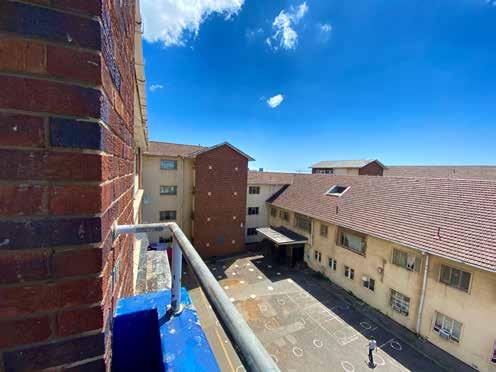
We hope you enjoy the read and feel inspired to fight against social injustice wherever you might find yourself.
RylandFisher Editor15 ACTIVISM
Zackie Achmat reflects on his life as an activist.
16 HOUSING
Why is government holding onto land that could be better utilised for housing?
19 STATE CAPTURE
A reflection on how the Constitution has held up to corruption and state capture.
20
Jonathan Jansen looks at the impact of corruption on education.
10
16
COPYRIGHT: Picasso Headline.

No portion of this magazine may be reproduced in any form without written consent of the publisher. The publisher is not responsible for unsolicited material. Social Justice is published by Picasso Headline. The opinions expressed are not necessarily those of Picasso Headline. All advertisements/advertorials have been paid for and therefore do not carry any endorsement by the publisher.
The
13 PROFILE: YABONGA CHILDREN’S PROJECT
Ensuring the rights of and uplifting young children and mothers with HIV.
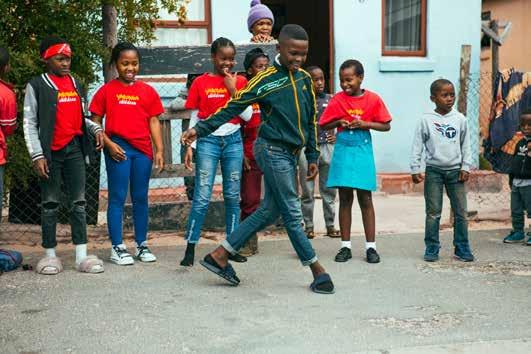
PROF THULI MADONSELA , director of the Centre for Social Justice at Stellenbosch University, invites business leaders and representatives of civil society to the International Social Justice Conference and Summit to be held in October
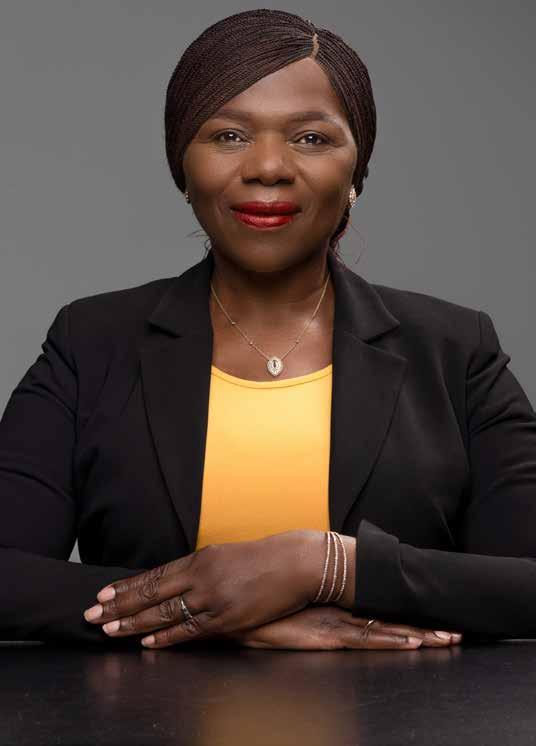
Over two days in October, national leaders drawn from academia, government, business, civil society, the diplomatic community, and experts from around the world, will meet in Cape Town to shed fresh light on the role of business and civil society in advancing social justice.
The 4th Annual International Conference on Social Justice and the 5th Annual Social Justice Summit will be held at the Artscape Theatre Centre on 11 and 12 October. The events are hosted by the Centre for Social Justice at Stellenbosch University (SU) and the Council of Social Justice Champions.
We look forward to discussions that will offer new insights and strategies to make a real impact. The corporate voice can be used effectively to help meet the social, economic, environmental and health needs of the communities they serve. Collaborative social justice interventions can be a powerful tool to bring about systemic social change.
The key objectives of the international conference and smmit are as follows:
1. Accelerate progress on the United Nation’s Sustainable Development Goals (SDGs) by intentionally drawing in business and civil society and ensuring every business and civil society sector is committed and engaged, particularly with SDGs 10 and 1.
2. Introduce and institutionalise the Musa Plan for Social Justice and Declarations adopted under the Musa Plan to catalyse the advancement of social justice in the interest of sustainable economic and social wellbeing and peace.
3. Share research and good practice models on the role of business and civil society in advancing social justice.
4. Agree on strategies to accelerate the role of business and civil society in achieving SDGs 10, 1 and 16.
5. Discuss the relationship between social justice and economic growth and sustainability, development, democracy and the rule of law.
6. Publish conference findings.
7. Cement the appreciation of the relationship between climate change and social justice as pressing challenges of our time and ensure that they are implemented speedily and in a complementary way.
8. Reflect on previous resolutions and ensure that implementation is scaled.
The following thematic areas will be at the centre of discussions:
• Corruption, ethics and governance.
• Economic parity (wealth, income, work and social security).
• Land equity and other national resources.
• Water, energy, food, climate change and just transitions.

Academics and researchers working on aspects of social justice linked to the main theme of the role of business and civil society in advancing social justice and any of the eight thematic areas of the international conference are invited to submit abstracts. Accepted abstracts will form the basis of research papers to be presented and distributed at the 4th Annual International Conference on Social Justice on 11 October 2023, leading to the 5th Annual Summit on Social Justice on 12 October 2023. Those willing to display posters on the topic of “The role of business and civil society in advancing social justice” at the international conference and summit are also invited to submit an expression of interest.
To facilitate the submission and follow-up process, topics and abstracts of 300–500 words in English must be submitted by 21 July 2023 to Fanelesibonge Ndebele at fanele@sun.ac.za
• Social wellbeing, including education, health and housing.
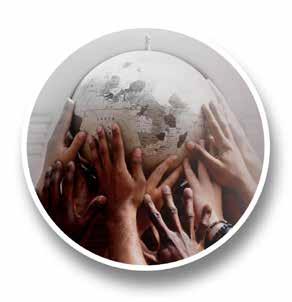
• Innovations in equity impact-conscious policy design
• Strengthening democracy and the rule of law.
• Corporate social investment.
For more information:
For more information, including information on registrations, submission of abstracts and other matters, please contact Fanelesibonge Ndebele at fanele@sun.ac.za and/or +27(0)21 808 9734.
COLLABORATIVE SOCIAL JUSTICE INTERVENTIONS CAN BE A POWERFUL TOOL TO BRING ABOUT SYSTEMIC SOCIAL CHANGE.
MADONSELA, director of the Centre

at Stellenbosch University, Law Trust Research Chair Professor in Social Justice, and Thuma Foundation founder, unpacks South Africa’s state of social justice, 29 years after the country’s first democratic elections
Twenty-nine years into South Africa’s journey towards its proverbial promised land that commenced with the first democratic elections in 1994, the country is once again at a precipice. Some are talking about a failed state, others are labelling the country a fragile democracy. A key metric for judging our democracy’s health is the crippling challenge of energy security. Businesses are dying, the education system is struggling and hospitals are unable to cope. Meanwhile, violence and mental unwellness, already spiked by the COVID-19 pandemic and lockdown regulations, are at their zenith.
Evidence seems to point to the paucity of turnaround leadership at Eskom, the state-owned enterprise (SOE) responsible primarily for electricity. There apparently has been no transformational leadership to help Eskom rebound from the ineptitude and corruption characterised by “the state capture years”. Initially flagged in the Public Protector Report, State of Capture, which ordered the establishment of what became the Zondo Commission, the capture of Eskom during President Zuma’s administration was confirmed by now Chief Justice Raymond Zondo in his report. State capture is best described as a Faustian pact between Zuma, the Gupta family and Zuma’s son, which saw ministers, director generals and SOE boards appointed to further the business interest of the “Zuptas” as the group was dubbed. Those who stood in the way were kicked out and persecuted.
An unexamined crucial factor in South Africa’s democracy fragility is the state of social justice. Social justice, as equal enjoyment of all rights and
freedoms, is particularly critical when looking at the progress in surmounting the legacy of economic and social harm against black people of all shades, classified as Africans, Coloureds and Indians/Asians, through what late Chief Justice Arthur Chaskalson referred to as wicked laws.
Equal enjoyment of all constitutionally promised rights and freedoms, except in state employment and social assistance services, remain colour-barred, with backsliding on some matters, including land ownership and the Gini coefficient. Populist intellectuals, calling themselves constitutional abolitionists, demand a new Constitution, arguing that the current “liberal” constitution leans towards preserving the ill-gotten gains of apartheid and colonialism.
It has been 80 years since the first South African Bill of Rights in the 1943 African Claims document was produced by AB Xuma, Sol Plaatje, Pixley Ka Seme and others, in response to the Atlantic Charter. However, racial segregation, unconscionable land ownership disparities and consequent wealth, income, work, health, nutrition, social prestige and other disparities socially engineered by various acts remain. Opportunities, resources, benefits, privileges and burdens remain stacked against the victims of the unjust colonial and apartheid laws and policies that unfairly distributed the benefits in favour of whites.
Since 2018, the Centre for Social Justice (CSJ) at Stellenbosch University (SU), has been bringing stakeholders together to consciously engage in conversations about taking social justice seriously. This annual gathering operates as a social justice think-tank and features the
International Social Justice Conference and National Social Justice Summit. The Social Justice Café – a student-targeted platform for conscious conversations – yielded the #Action4Inclusion crowdfunding initiative and has seen about 100 university students remain registered or graduate and inspire similar drives countrywide. The CSJ’s flagship project, the Social Justice Impact Assessment Matrix project, which leverages data science to institutionalise social justice impact-conscious policy design, has contributed to equality and poverty impact conscious discourses on the COVID-19 response, the distress grant, land reform, just energy transition, immigration law reform discourses and advocacy for urgent implementation of Chapter 5 of the Promotion of Equality and Prevention of Unfair Discrimination Act (Equality Act), which has been shelved for 23 years.
To turn our country’s fortunes around, we need constitutionally attuned governance that places social justice at the centre while transcending corruption and related misgovernance. Parity in the enjoyment of the rights and freedoms our society offers and consequent structural social pathologies and economic inefficiencies, demand purpose-driven leadership and time-sensitive action. An opportunity to anchor and catalyse social justice progress lies in the global Sustainable Development Goals (SDGs). The 2023 Social Justice Summit and Conference on 11–12 October 2023 will focus on the role of business and civil society in advancing social justice.
EQUAL ENJOYMENT OF ALL CONSTITUTIONALLY PROMISED RIGHTS AND FREEDOMS, EXCEPT IN STATE EMPLOYMENT AND SOCIAL ASSISTANCE SERVICES, REMAIN COLOUR-BARRED, WITH BACKSLIDING ON SOME MATTERS.
South Africa is at an energy security crossroad, writes
BONGIWE NDONDO, CEO: Hlanganisa Community Fund for Social and Gender Justice
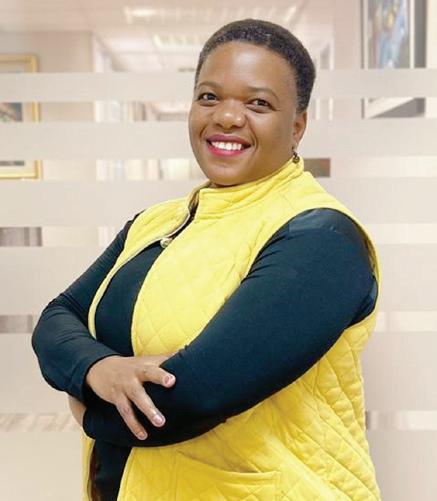
The just energy transition in South Africa is facing significant challenges and has been characterised by several injustices. The country finds itself at a critical crossroad in terms of energy security. While the transition to cleaner energy sources is necessary to address climate change and move away from carbon-intensive practices, how it is being implemented has raised concerns about social justice and equity.
One of the main injustices of the energy transition is its impact on ordinary people and small businesses. Rolling blackouts and unreliable electricity supply have disrupted lives, livelihoods and economic activities. Micro and small enterprises rely heavily on a consistent energy supply to remain in operation, but the current situation has caused significant hardships and even forced some businesses to close down. This unequal burden falls disproportionately on marginalised communities and those who cannot afford alternative energy sources such as solar power, exacerbating existing inequalities.
Furthermore, the policy direction and priorities surrounding the energy transition have been contradictory, leading to confusion and hindering progress. While there is an understanding of the need for an energy transition, the timing, pace, and prioritisation have not been clearly defi ned. This lack of clarity and consistency in policy hampers efforts to address the energy crisis effectively.
Hlanganisa focuses on strengthening social accountability and promoting human rights in pursuit of social justice. The fund specifically supports women’s rights-centred, community-led programmes aimed at building resilient and sustainable communities.
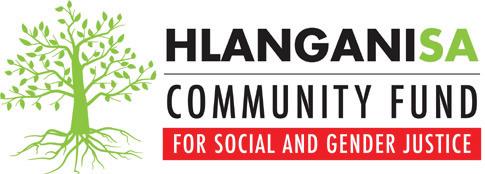
A key aspect of Hlanganisa’s work is supporting the economic empowerment of women as a means to address gender-based violence. This approach recognises that economic empowerment can play a significant role in empowering women and reducing their vulnerability to violence and discrimination.
The transition from carbon-based energy sources, particularly coal, also has social implications for mining towns. These communities have historically been exploited and marginalised due to the practices associated with coal mining. As the demand for coal decreases, many jobs in these towns are likely to be lost, leading to unemployment and further social and economic challenges. The transition must consider the wellbeing and future prospects of these communities and ensure that they are not left behind.
Another concern is the concentration of benefits and opportunities in the energy transition. While financiers and those who can afford to invest in renewable energy technologies stand to gain, marginalised communities and small businesses often lack the financial resources to access these alternatives. This further perpetuates existing inequalities and
leaves vulnerable populations without access to reliable and affordable energy solutions.
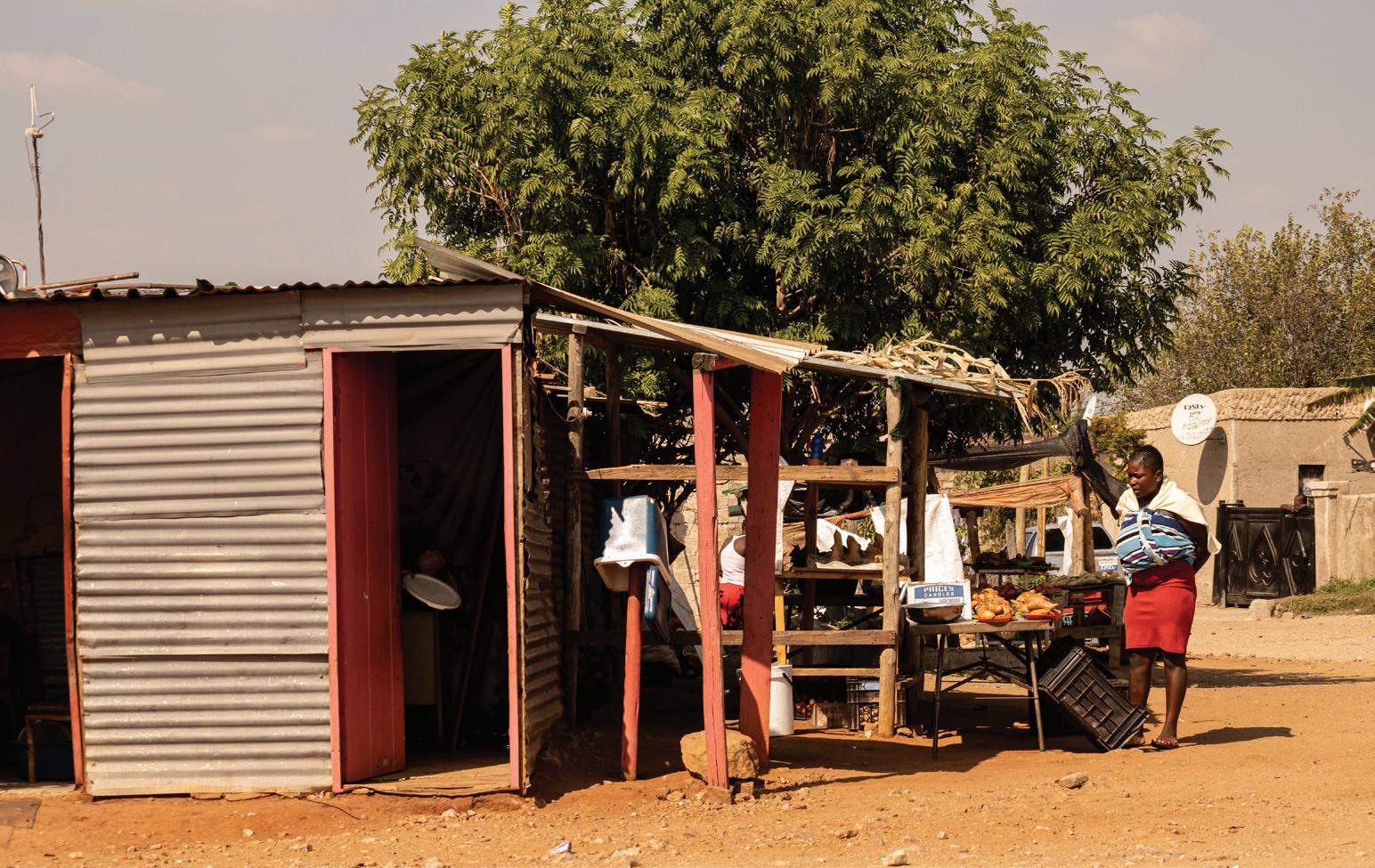
To address these injustices, the energy transition must be guided by principles of social justice, including social equity, environmental justice, transparency, good governance and intergenerational justice. The climate commission responsible for overseeing the just transition consists primarily of experts and politicians, with the voices and concerns of ordinary South Africans not adequately represented. The voices and concerns of ordinary South Africans, particularly those most affected by the energy crisis, must be central to the discourse and decision-making processes. Inclusive conversations that prioritise the needs of marginalised communities and small businesses are essential to achieving a just energy transition.
The just transition rhetoric promises us new jobs, new opportunities and even a new accountability paradigm. However, very little is happening to cushion those most at risk. South Africa’s energy security crossroad requires a comprehensive, integrated approach that balances environmental concerns with social justice considerations. It is imperative to find solutions that not only address the energy crisis, but also mitigate the negative impacts on vulnerable communities, promote equitable access to clean energy and foster sustainable development for all.
Scan this QR code to go directly to the Hlanganisa website.
For more information: www.hlanganisa.org.za

The Domestic Violence Amendment Act came into operation in April 2023. Just a few weeks later, newspapers reported yet another rape and murder of a teenage girl in Soshanguve. Clearly, a new set of laws does not stop gender-based violence and femicide (GBVF), so what will?
Sazini Mojapelo, CEO of the GBVF Response Fund, says the problem does not lie with South Africa’s laws, policies or frameworks. These, she maintains, are among the best in the world, pointing to the new legislation as evidence.
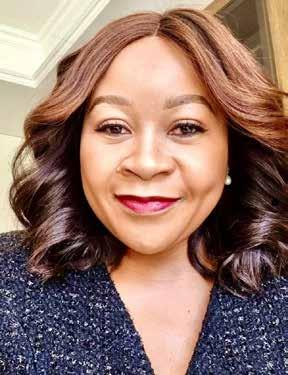
Mara Glennie, founder of the TEARS Foundation, says one of the biggest problems is the lack of execution of policies, especially at community level, where it is most important. Glennie is concerned that the new act will introduce new complexities because there will be even more laws to follow. It is more important that all stakeholders – from police to government and nongovernmental organisations – work towards a clearly defined, common goal, rather than a general principle.
Glennie says: “We need to make it easy to report crimes, to provide support for victims and to ensure there are adequate shelters.” Support for victims is lacking, and Glennie would like to see more focus on the recovery period, with women equipped with practical skills to help them make a life for themselves.

Fund for Social and Gender Justice, agrees that it is important to help women find jobs. Hlanganisa has worked with the IDC under the Social Employment Fund to create 2 600 job opportunities for women, particularly for victims of GBV. “When women have access to employment opportunities, they gain greater financial independence and may be less likely to tolerate abusive behaviour from their partners. Economic dependence can leave women vulnerable to abuse, as their partners may use financial control as a means of power. However, when women have their own source of income, they are better equipped to leave and support themselves and their families,” Ndlovu comments.
Glennie says the lack of accurate information is a concerning obstacle in the fight against GBV. Although some reported crime statistics indicate a downward trend, in reality, they are increasing, says Glennie – the shortfall is due to victims not reporting cases. And, without knowing where the abuse is occurring or how, it is almost impossible to take action.
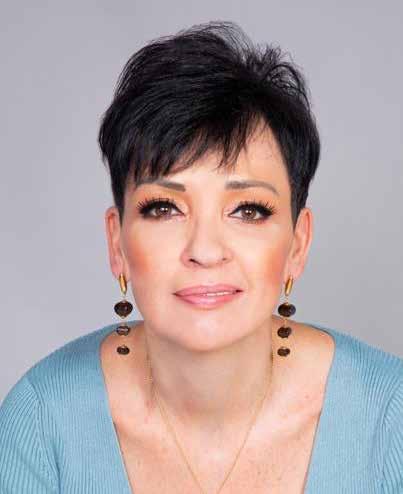
This is why Prof Corné Davis, an associate professor at the University of Johannesburg, is excited to have worked with the TEARS Foundation to create victim profiles based on information beyond the number of cases reported. The resulting report, to be released towards the end of the year, has taken into account phone calls to crisis lines and even bodies at morgues. “With this information,
we can create more targeted interventions,” she says.
For Mojapelo, the answer lies in prevention. She points to the effectiveness of awareness campaigns such as the ABC awareness campaign that helped to reduce AIDS infections and the COVID education campaigns that played a role in changing behaviour during the pandemic. If the same awareness can be raised to educate people about GBV, there may be a chance for change.
For any initiative to be effective, Mojapelo continues, a multipronged, multisectoral approach is critical: the justice department needs to show that perpetrators will be taken to task, for instance, police reporting channels must be simplified and streamlined so it becomes easier to report crimes.
“Perhaps most of all, we need to change the narrative around GBV. When women talk about GBV, it’s usually from a victim’s stance and couched in terms of guilt and shame. We are never encouraged to think about it from a man’s perspective, nor do we talk about the role men play in ending the cycle. We must put forward examples of positive masculinity to counter the currently prevailing toxic masculinity,” she concludes.
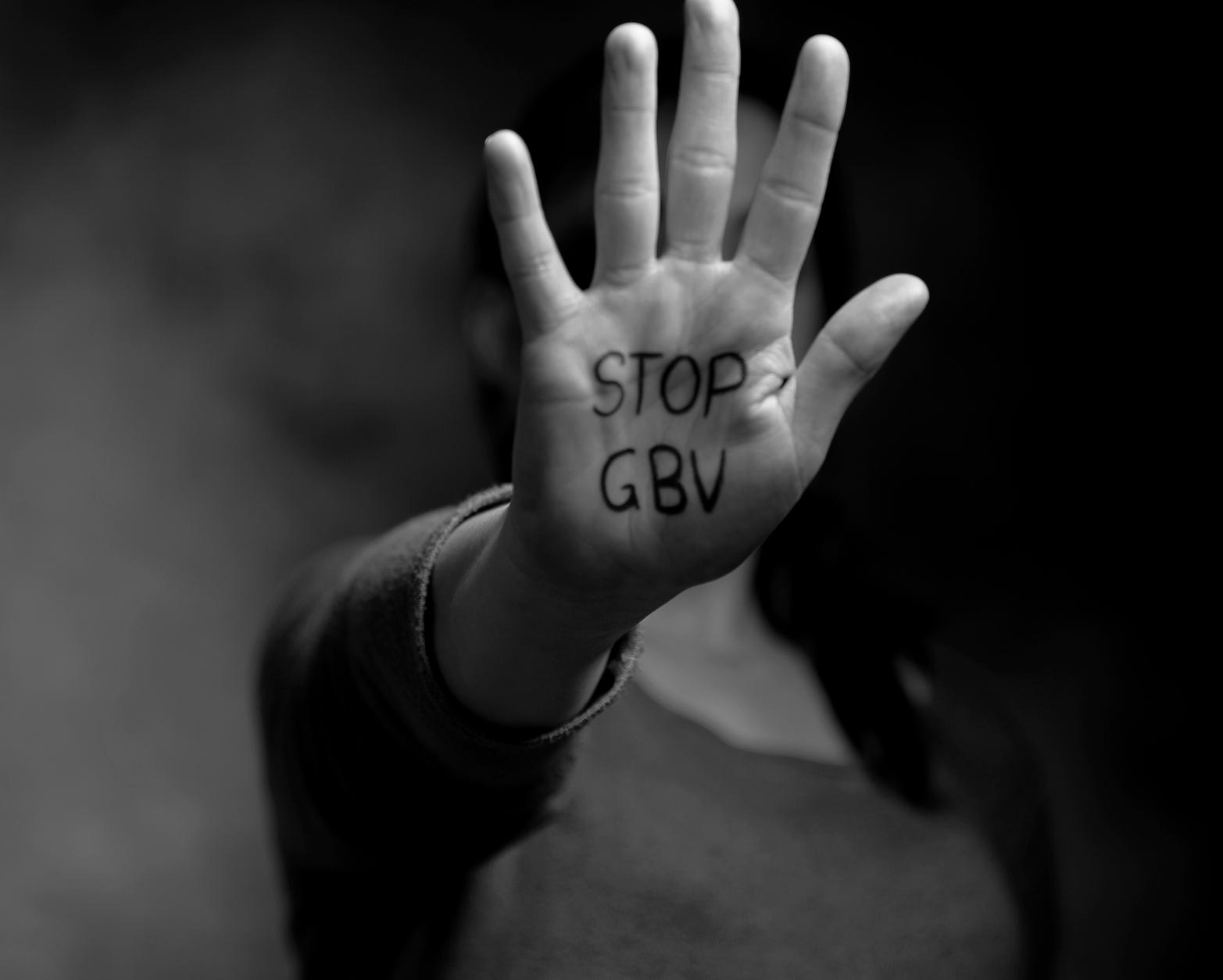
Thuthuzela Care Centres (TCCs) are one-stop facilities introduced as a critical part of South Africa’s anti-rape strategy, aiming to reduce secondary victimisation and build a case ready for successful prosecution. Fifty-one centres have been established since 2006 to make the centres accessible to all South Africans needing TCC-related services.
Source:https://www.gov.za/TCC
The latest quarterly, January to March 2023, South African Police Service (SAPS) crime statistics reveal a shocking rise in violence against women, with 969 murders and 1 485 attempted murders recorded over this period.
“WHEN WOMEN HAVE ACCESS TO EMPLOYMENT OPPORTUNITIES, THEY GAIN GREATER FINANCIAL INDEPENDENCE AND MAY BE LESS LIKELY TO TOLERATE ABUSIVE BEHAVIOUR FROM THEIR PARTNERS.” –
Bongani NdhlovuLISA WITEPSKI asks if the new domestic violence set of laws can do anything to prevent gender-based violence Bongani Ndhlovu Prof Corné Davis
investing in meaningful and impactful socioeconomic development is at the heart of our responsible business strategy. To achieve this, we invest deeply in education and its power to enable mutually positive futures. The lack of access to adequate facilities and opportunities in schools adversely impacts children’s ability to focus, maintain discipline and succeed in their studies.
These issues are strongly linked to higher rates of absenteeism and school dropouts. This is why we have developed various initiatives to empower learners and help them reach their full potential.
Launched over a year ago, the Old Mutual Insure Empowering Girls Programme is an exciting initiative that offers to identify and guide talented Grade 11 girls from underprivileged areas in Gauteng to become the future leaders of the insurance industry across various levels. They are given opportunities to grow and excel in their academic, professional and personal development journeys.
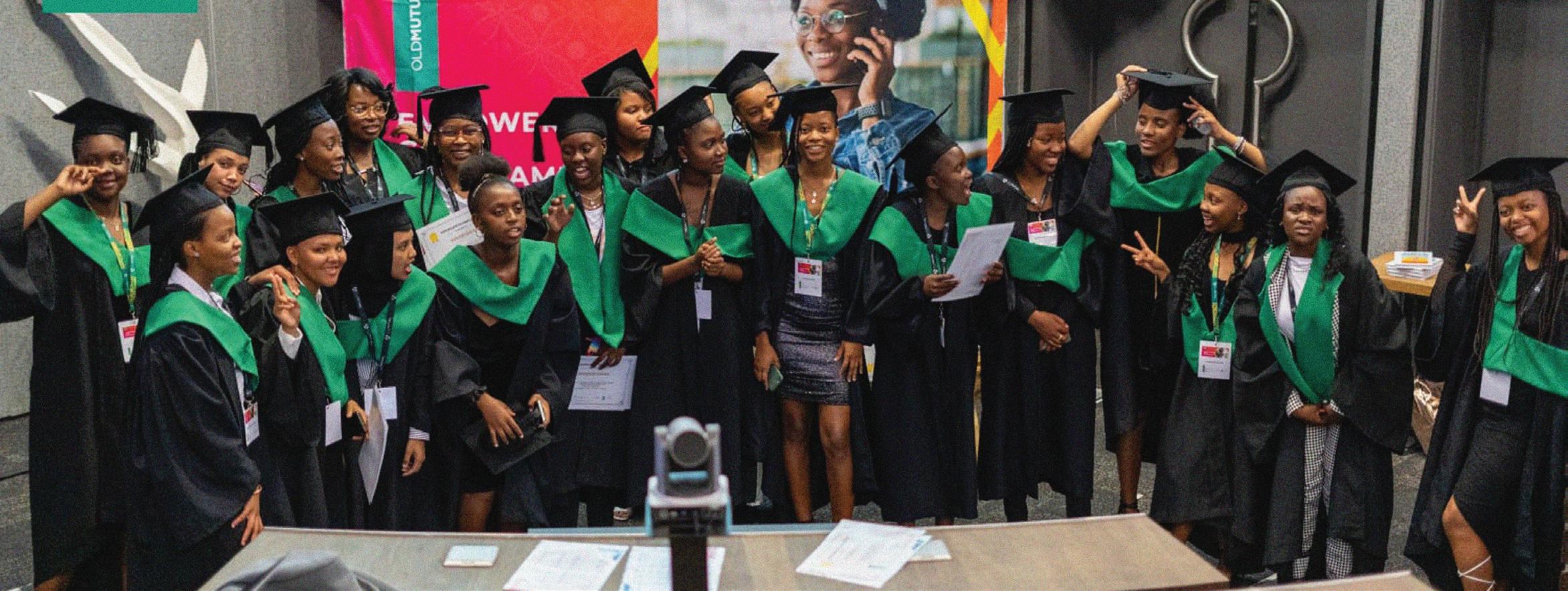
The learners are equipped with essential life skills and ICT literacy and are given mentorship and job shadowing opportunities. We have partnered with Tranquil and Tenacious Minds, Afrika Tikkun,
and Ikusasa Technology Solutions to deliver this programme and ensure our participants are ready to take on the world after high school.
We partnered with WildHearts Foundation Africa in 2020 through the Pelo ya Mosadi (The Heart of a Woman) Project. This game-changing partnership produced one of the first women-led factories in Africa to produce high-quality, reusable and SAB-approved sanitary pads for young schoolgirls. Located in Mpumalanga, this powerful initiative also created employment for women in local communities at the Malaika Textile factory.
In South Africa, girl learners in under-resourced areas often struggle to access menstrual hygiene products, leading them to miss school and fall behind in their education. Research conducted by the United Nations confirms that 1 in 10 African girls miss school during menstruation –an appalling reality. Through this partnership, we annually provide over 1 600 sanitary pad
packs that are durable enough to last for five years, ensuring they never miss another day of schooling because of their menstrual cycle.
A good understanding of mathematics is the key for learners to access opportunities for bursaries, scholarships and learnerships. Our country needs more skilled doctors, teachers, engineers, scientists and entrepreneurs –all these professions require a firm maths foundation. As such, we have partnered with the South African Mathematics Foundation (SAMF) for the My Maths Buddy initiative, which focuses on improving mathematics results in schools and helping matriculants access brighter opportunities in the next phase of their education.
We have worked with learners and teachers, delivering three learner workshops and an Effective Maths Teaching seminar to Vulanindlela Secondary School in Orange Farm for 9 maths teachers and 134 Grade 9 learners. Learners were excited to learn that maths can be a fun and easy subject. The teachers received manuals on handling maths language, a workbook and various other resources for excellence in maths education. These kits, along with the learning
At OLD MUTUAL INSURE, we are committed to caring for our communities, employees, customers and the environment
We iNVest DeePlY iN eDucatioN aND its PoWeR to eNaBle MutuallY PositiVe FutuRes.The OMI EGP 2022 cohort graduate with an NQF 5 ICT qualification.
methodology explored at the workshop, will assist them with teaching maths effectively.
Following our efforts at our second outreach programme at Matla Combined School in Kromdraai, the school saw a 10.2 per cent improvement rate in maths performance last year.
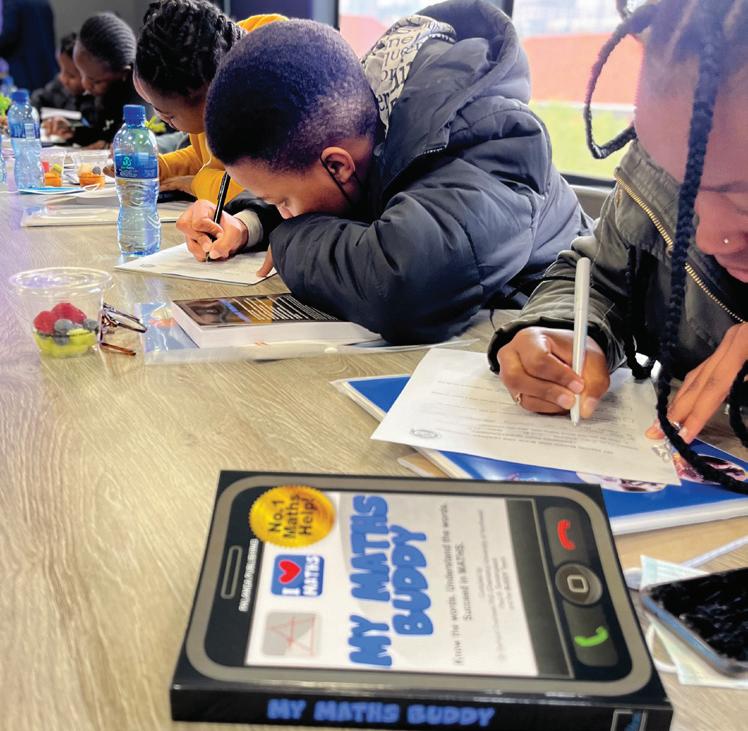
Our Empowering Girls Programme candidates also attended two My Maths Buddy workshops. They found the sessions extremely beneficial, and we are eager to see the improvement in their overall maths results.
The programme is proving beneficial for students as expressed in this feedback from a student from Jan Botha Secondary School: “It was fantastic. I can now understand how mathematics is related to my future job, giving me the motivation to improve.”
As we continue our partnership with SAMF, we look forward to seeing the impact of our efforts on the school results, the lives of the learners and the economy in the long run.

The MiDesk is a proudly South African innovation that converts from a wheelie schoolbag into a desk and chair with a solar light and charging portal and is suitable for home and school use. In response to the problem of many children who attend schools without desks nationwide, we have partnered with the MiDesk foundation to donate 950 MiDesks to schools in the Eastern Cape, North West and Limpopo provinces.
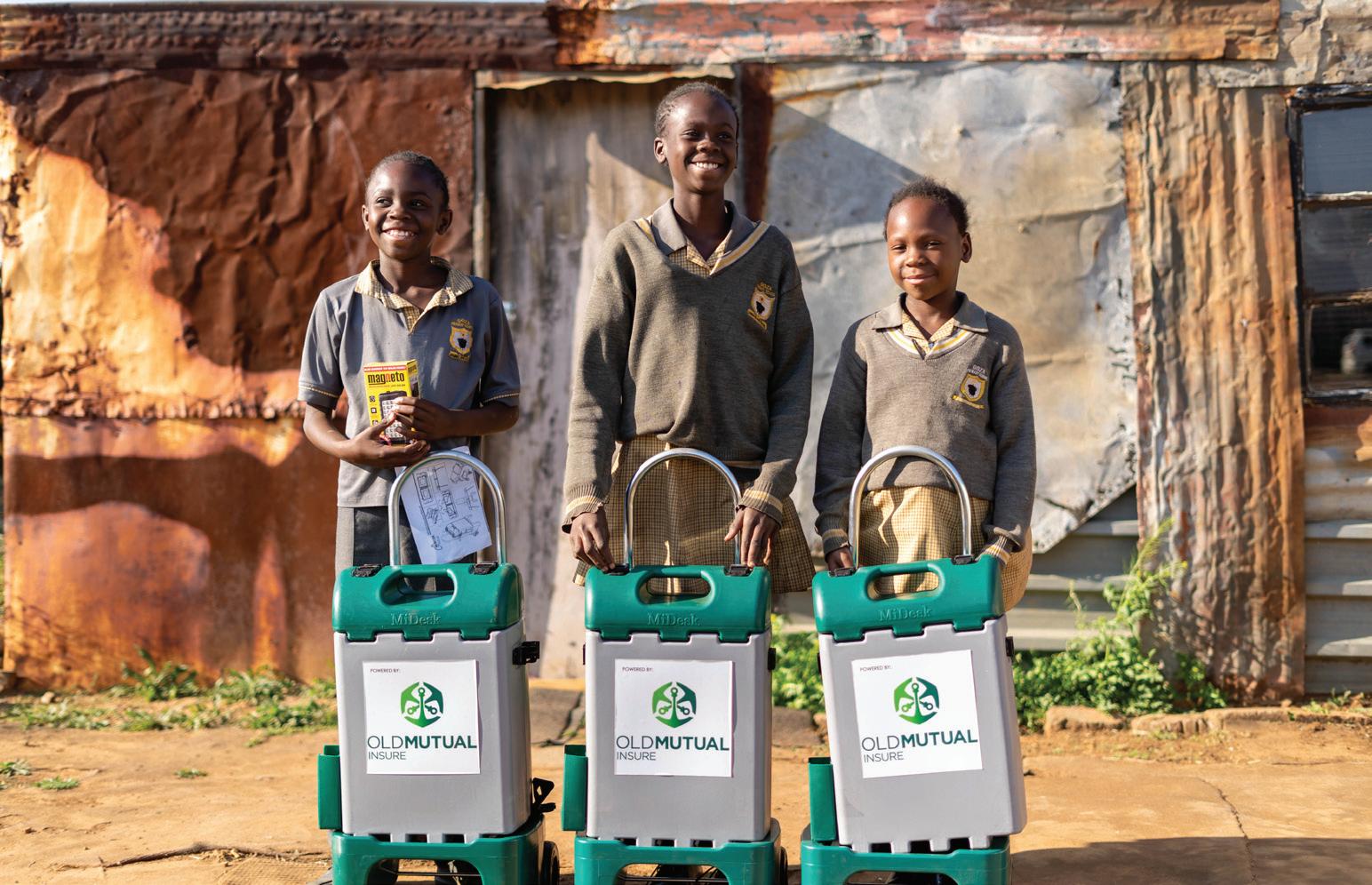
To assist in addressing the effect of droughts in schools and communities, we built boreholes and provided water tanks and guttering to help the communities harvest water. These installations are supplemented with school and community education on water harvesting, management and hygiene to enable better resilience during droughts.
We also visited Matla Combined School to work with it on redesigning the school garden to boost output and sustainability. The garden supplies wholesome nutrients to the school’s meal programme, and students can take fresh vegetables home.
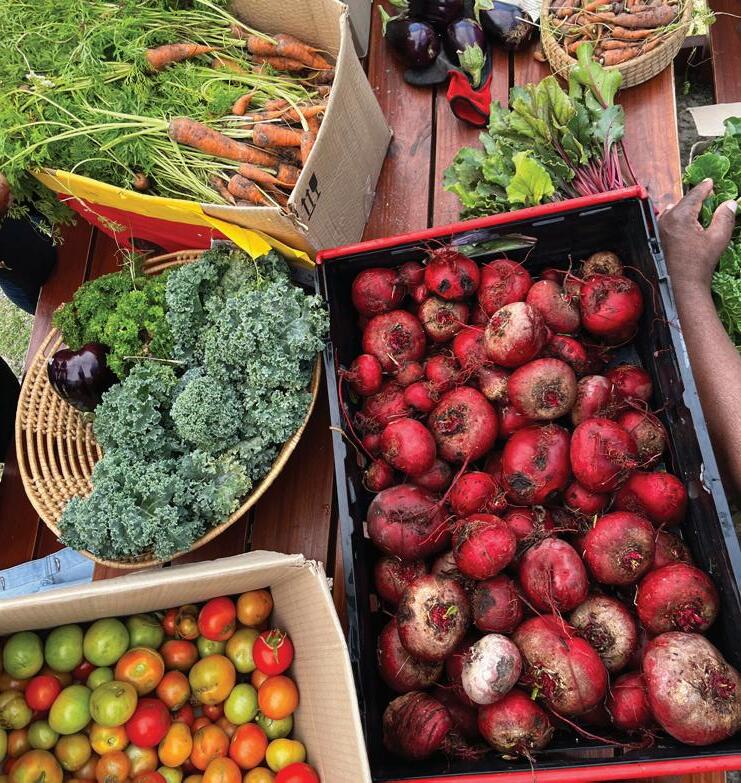
Old Mutual Insure partnered with Call-2-Care and Waste-ED for an initiative that merges food security and urban greening to impact underprivileged communities in Khayelitsha. The partnership also looks at educating communities on waste management. The iGardi project kicked off at False Bay College, where we built vegetable garden beds out of eco-bricks. The vegetable garden will be maintained using best-practice permaculture. This garden will go a long way in providing students impacted by poverty and hunger with nutritious meals.
We are deeply proud of the lasting impact these partnerships and initiatives will have for future generations and will continue creating roots in communities across the country to do great things with them.
For more information: 0860 63 73 73 csirequests@ominsure.co.za oldmutual.co.za/about/old-mutual-insure/
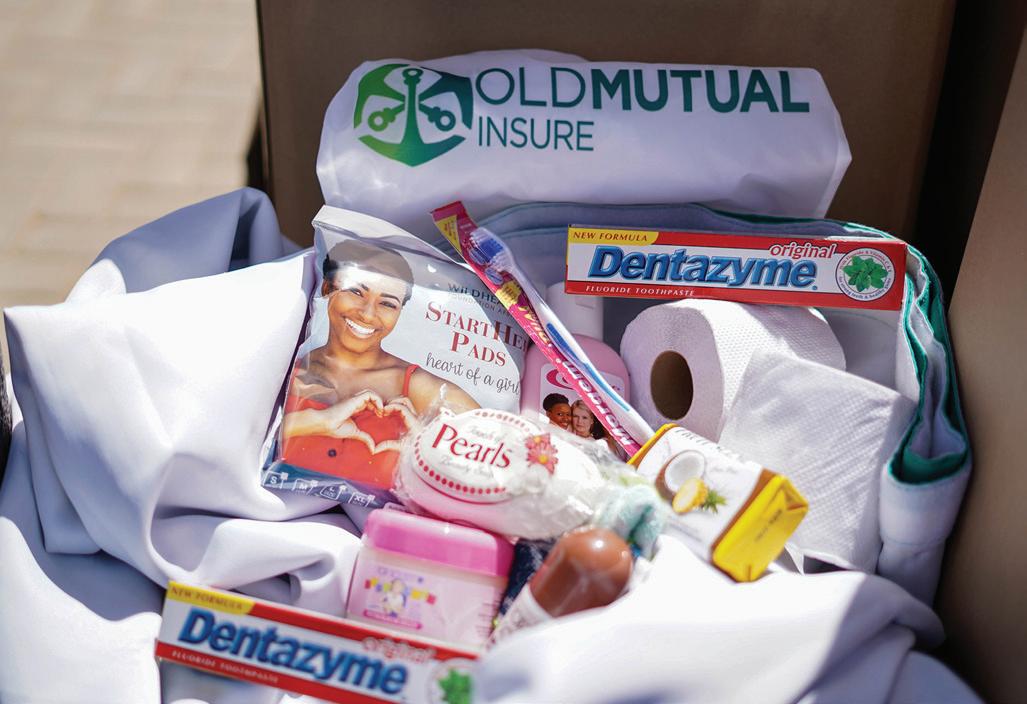

WE HAVE PARTNERED WITH THE MIDESK FOUNDATION TO DONATE 950 MIDESKS TO SCHOOLS IN THE EASTERN CAPE, north west AND LIMPOPO PROVINCES.The MiDesk provides learners with a dedicated workspace both at home and at school. De-mystifying Mathematics with the SAMF My Maths Buddy programme. Produce from the Khayelitsha False Bay College vegetable garden
Writer, facilitator, student and LGBTQIA+ activist TAMSIN JACOBS-WORT discusses the issues faced by gender-alternative children in the schooling system


Ididn’t come out until my twenties because the thought of being called a lesbian at school made me want to curl up into a ball and die. There were so many “that’s so gay” jokes and weirdly sexualised innuendos for girls who liked girls that I wasn’t keen on being a part of. I figured that if I stayed “in the closet” for long enough, I’d come out stronger. What ended up happening was a stream of unfortunate incidents of bullying (where I was the bully), projecting my secret desires and feelings on innocent, unassuming peers and villainising others for what I felt to be justified rage for being different.
In the same school, at the same time, a young man was outed. He’d told one of his friends that he was gay – it spread across the entire school like wildfire. People started shifting away from him during class time, he was sitting alone during break. He went from having a group of friends to no friends. And the names he was called … horrible.
Children can be so cruel and intolerant.
Last year, my partner Jade and their colleague Nthutuzo were invited to a small township outside of Johannesburg where community activists were seeking guidance after the death of a school pupil. The young girl, aged 13, had allegedly been poisoned after she was outed by her peers as lesbian.
THERE ARE AS MANY AS 72 DIFFERENT GENDER IDENTITIES RECOGNISED ON SOCIAL MEDIA PLATFORMS. SUCH DEVELOPMENTS NEED TO BE CONSIDERED WHEN WE DECIDE HOW WE’RE GOING TO EDUCATE CHILDREN ON GENDER IDENTITY.
In deep contrast though, earlier this year, a colleague of mine very proudly shared with me the story of their daughter, who, aged seven, understands the term nonbinary and insists that their pronouns be used and always respected.
Both instances took place in Gauteng, under which we enjoy the same laws and are governed by the same Constitution that seeks to protect children and LGBTQIA+ identifying adults regardless of age or race.
It is not okay that young children are victimised and face stigma over who they are as people, and that they are being subsequently “outed” by their peers who don’t seem to understand the degree of danger that creates. The idea that being different in any way is grounds for incessant bullying and the ultimate breaking down of children
as young as 13 should not sit well with any parent. And, the idea that bullying is just part of growing up is a clear sign of an issue that begins at home.
Towards the end of 2022, civil society members of the Basic Education Social Inclusion In Education Working Group (SIiEWG) issued a joint statement, addressing the sudden uproar in the media by “pro-family” and religious fundamentalists and conservative groups around the apparent issue of introducing “unisex” toilets in schools.
The panic related to a single section of the Department of Basic Education’s (DBE) draft guidelines for the socioeducational inclusion of diverse sexual
orientation, gender identity, expression and sex characteristics in schools on bathrooms and change facilities.
The guidelines were developed to assist schools with developing and implementing strategies for a safe and socially just learning environment for all learners – regardless of their sexual orientation, gender identity and expression and sex characteristics.
The guidelines emphasised a practical approach and tools to widen an inclusive schooling environment that aligns with constitutional values and affirms and protects diverse learners. It aims to ensure schools are addressing and eliminating historic and ongoing discrimination, harassment and victimisation and, in turn, to advance equality in outcomes for all learners.
But “pro-family” and religious groups condemned the Department of Basic Education’s proposal. A public petition was started and shared, saying: “The Department of Education is proposing mixed gender toilets. How do we protect our children who need to be safe at schools? Toilets are private, and suggesting that girls and boys share toilets will bring about many social ills. As a responsible parent, I cannot condone or approve this. Schools are supposed to be a safe haven for all.”
At the same time, a video was released of two prominent conservatives discussing the guidelines, insisting that gender and sexuality diversity is an “ideology” and that gender is binary (male and female only and determined by a normative understanding of biological sex characteristics).
The guidelines categorically did not direct schools to replace all single-sex bathrooms and change facilities with “unisex” ones. They did, however, encourage schools to make gender-neutral facilities available to gender-nonconforming learners.
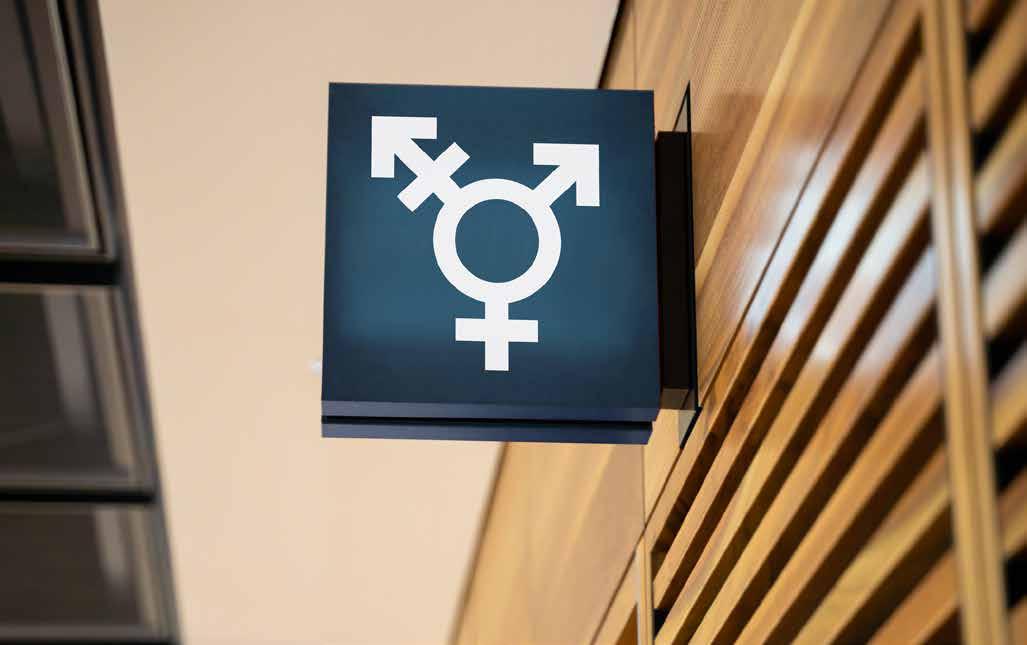
It is completely disingenuous for those opposing the guidelines to reduce a broad, comprehensive list of tools to help schools create inclusive learning environments to toilets. This is only one of the many attempts made to provide a safe learning environment for LGBTQIA+ learners and to ensure that LGBTQIA+ youth can concentrate on their schooling rather than worry about their safety.
The deliberate spreading of false information makes a mockery of the lived experiences of LGBTQIA+ learners.
The DBE and SIiEWG spent six years jointly developing these guidelines, in consultation with experts, human rights defenders, educators and parents. Research shows that LGBTQIA+ learners are disproportionately affected by violence and discrimination in schools every day at the hands of their peers and educators.
Suicide rates among LGBTQIA+ learners are staggering, and we urgently need protective measures to address ongoing bullying and harassment.
In the second edition of Research Matters by Fanzel du Plooy-Cilliers, Corné Davis and Rose-Marie Bezuidenhout, a section in the first chapter speaks to gender, saying: “Consider how the identification of multiple gender identities (that are still not recognised in many countries in the world) has implications …”.
There are as many as 72 different gender identities recognised on social media platforms. Such developments need to be considered when we decide how we’re going to educate children on gender identity – and where and how they fit into the spectrum. And then, we need to consider that if they don’t, they can be allies.
Seeing that is has just been Youth Month, and we’re coming together to advocate for young people and their rights to education and dignity, let’s add the rights of LGBTQIA+ children to that memorandum –and their right to live and breathe without stigma and hatred.
When determining which toilets and change rooms a learner will use, the school should discuss this with the student/parent/caregiver, and
• Schools should provide nongender-specific toilets and change rooms with individual stalls or cubicles that can provide privacy for all users. The key considerations apply to all learners: safety, dignity and privacy. Under no circumstances shall a learner be required to use a single-user facility because they identify with a nonheteronormative sexual orientation, are transgender or are gender nonconforming.
• Facilities should be labelled sensitively and appropriately.
• Schools should formulate a policy for toilets as well as change rooms so that there is clarity on engaging with these facilities. Learners must be allowed to self-identify and where there is a clear policy to this effect it makes it easier for learners to feel enabled to access a toilet or use a change room of their choice.
• The school should facilitate the education and training of the school body on the policy to avoid discrimination or harmful behaviour.
• Increase adult supervision around these facilities as hot spots for bullying. The guidelines clearly seek to advise and guide schools in necessary policy development, at the heart of which is consultation with parents and learners.
IT IS NOT OKAY THAT YOUNG CHILDREN ARE VICTIMISED AND FACE STIGMA OVER WHO THEY ARE AS PEOPLE, AND THAT THEY ARE BEING SUBSEQUENTLY “OUTED” BY THEIR PEERS WHO DON’T SEEM TO UNDERSTAND THE DEGREE OF DANGER THAT CREATES.
The African Angels School in Chintsa East, just outside East London in the Eastern Cape, was established in 2012 to provide parents from the underserved Chintsa East community with an affordable quality primary school option for their children. Since its opening, the school has educated more than 250 children, including four girls now studying at the Oprah Winfrey Leadership Academy for Girls and a further four graduates awarded an Allan Gray High School scholarship. The first class to graduate from African Angels in 2017 matriculated from four different high schools last year; two were successfully accepted into university to study a Bachelor of Health Sciences, Occupational Therapy, and Bachelor of Education.
The African Angels Trust, a registered nonprofit organisation with Section 18(a) tax status, focuses its activities exclusively in the Chintsa East area. The trust’s ethos is to partner with local community leaders and activists to drive change in Chintsa by assisting people affected by the lack of service delivery.
What started as a dream to provide children with a good education 12 years ago has now, guided by the needs of the community African Angel serves, developed into a beacon of hope and transformation partner at the grassroots level. Founder Lou Billett believes it is not fair that just because someone does not have much
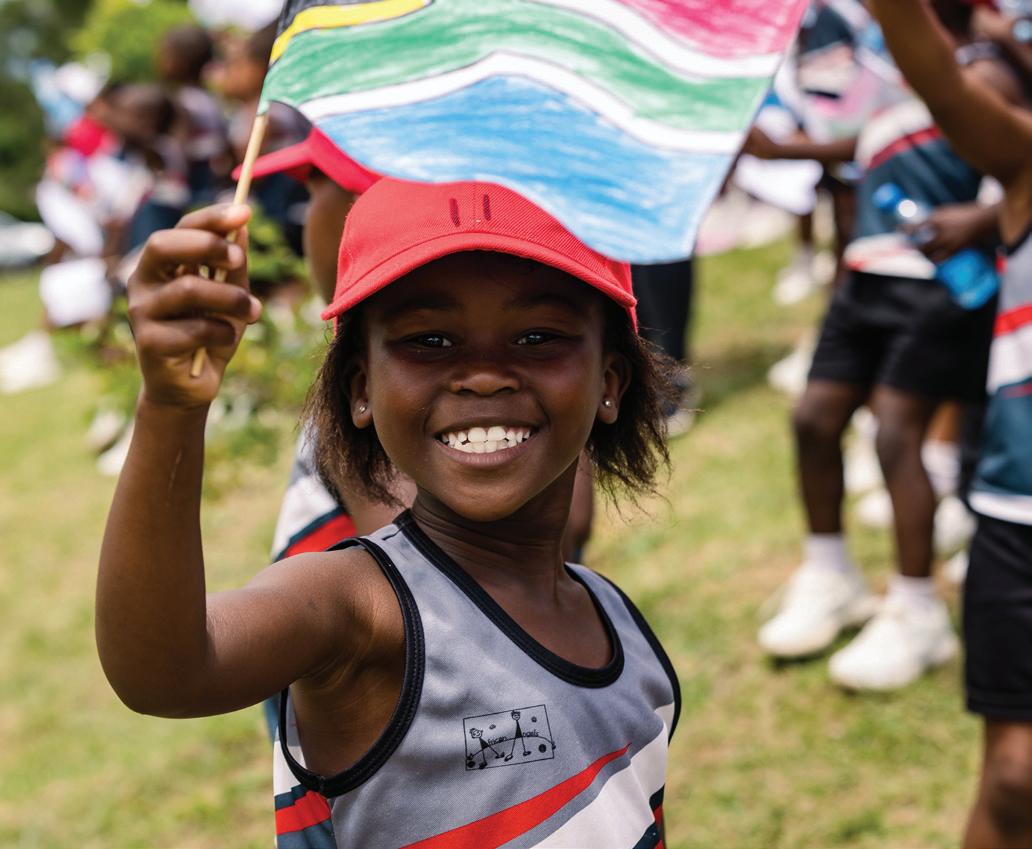
money, they cannot get a good education, and that parents are limited in their schooling choices because of their economic disadvantage. An expat Australian and now South African resident, Billett continues to pursue initiatives that will level the playing field for the families of Chintsa.
The African Angels School continues to serve as the centre of excellence in education and the core of the trust’s operations. It is also one of the biggest employers in the area, with 12 local residents employed on a full-time, permanent basis at the school. In addition, four women are employed part-time at the African Angels Days for Girls Enterprise – producing high-quality, washable sanitary pads and table linen. Another resident is employed full-time as the lead teacher at the trust’s Early Childhood Centre Partner, Ikhwezilomso Creche. A further six youths work on various funded youth programmes in the creche, school and the Chintsa East community learning centre – a computer hub positioned in the middle of the community, providing free and uncapped Wi-Fi for all within range.
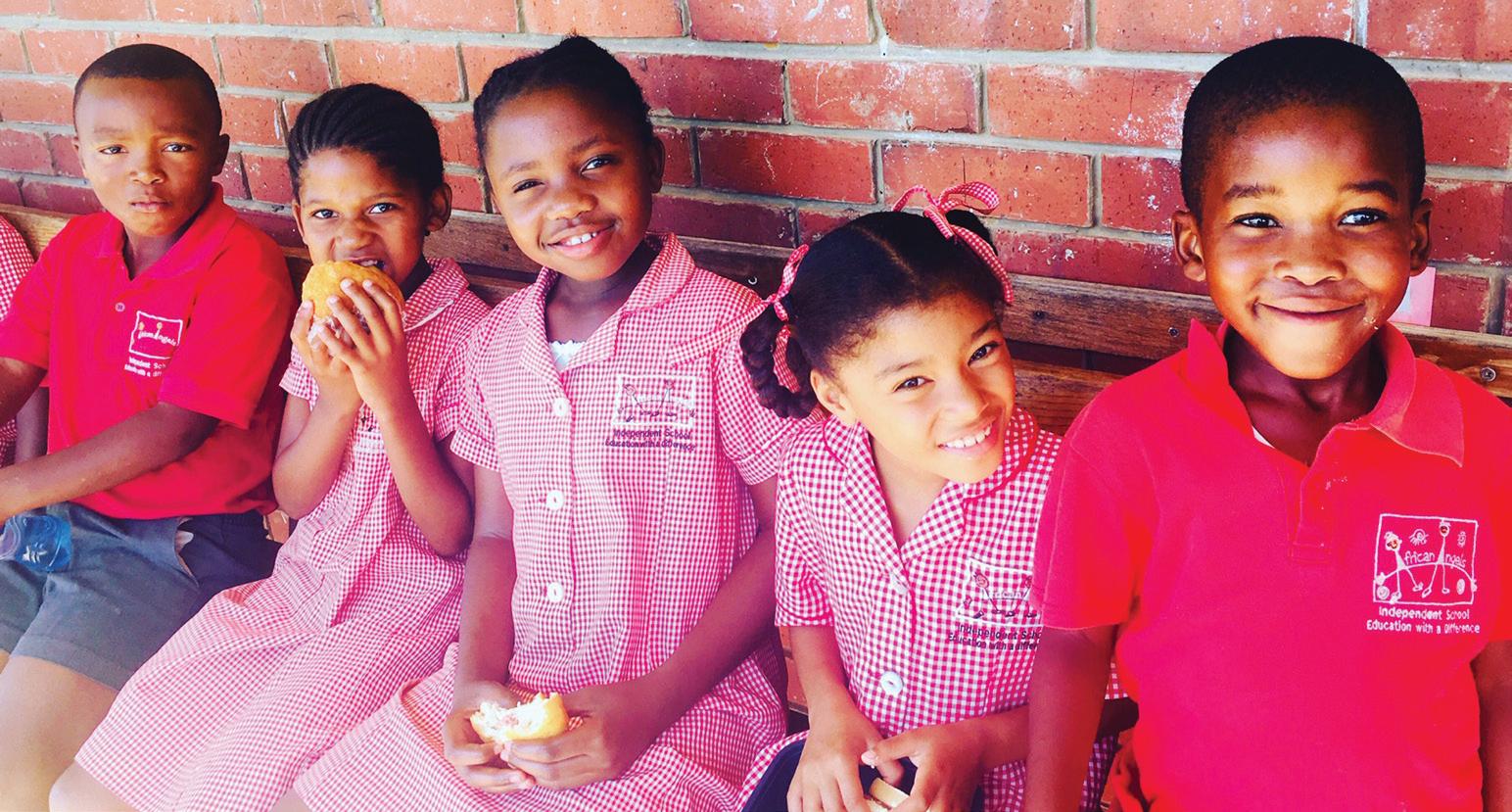
Billett, who is also the chair of the trust, works collaboratively with the local ward councillor, Honey Pakamile, a third-generation Chintsa resident, to identify projects important to people in the area. In 2020, this resulted in 160 streetlights donated and installed by Beka Schreder, in partnership with Great Kei Municipality, Eskom, the community of Chintsa
East, and African Angels. Billett and Pakamile are currently working together to refurbish the community’s “craft centre”, which was destroyed by fire some years back, incorporate a health outpost, satellite community police post and a social work office so that services are within walking distance of the community. Currently, people have to make an expensive and long round trip to East London to access services.
The African Angels School receives no government subsidy or materials and is self-funded. Over the years, it has built a reputation of excellence in education, financial transparency, and continual improvement in all aspects of its work. Billett believes that African Angels must continue to be guided by the needs of the community it serves. African Angels will interview each household with a school-going child, using the Greenlight Movement platform, to better inform its work in the coming years.
African Angels continues to seek new partners as it strives to act as a catalyst for community change and disrupt the inequality so prevalent in South Africa today.
For more information:
Lou Billett, chairperson 076 555 4711 loukbillett@gmail.com
www.sponsoranangel.org

africanangelsfamily
angelsafrican
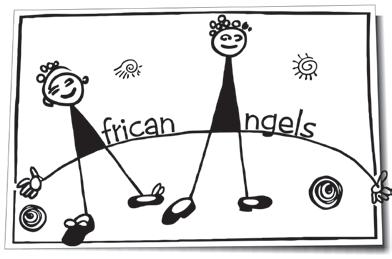
AFRICAN ANGELS TRUST acts as a catalyst for community change and focuses on providing quality primary school education
THE TRUST’S ETHOS IS TO PARTNER WITH LOCAL COMMUNITY LEADERS AND ACTIVISTS TO DRIVE CHANGE IN CHINTSA BY ASSISTING PEOPLE AFFECTED BY THE LACK OF SERVICE DELIVERY.
ULPHA ROBERTSON, founder of Yabonga Children’s Project, shares that the rights of young children and mothers with HIV have been the driving force behind this small organisation for the past 25 years
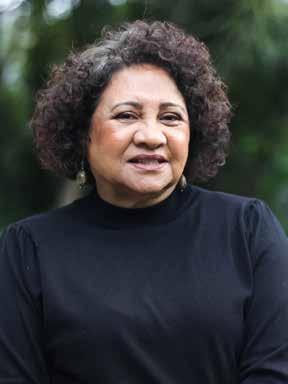
Yabonga Children’s Project, a small nongovernmental organisation, is celebrating 25 years of empowering and uplifting children and families in Cape Town’s poverty-stricken townships. It focuses on educating young children, supporting women living with HIV, caring for children living with and orphaned by HIV and mentoring vulnerable youth.
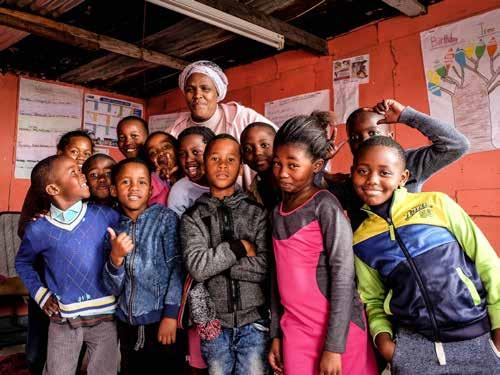
We believe the success behind Yabonga Children’s Project and its longevity has been our clarity in selecting projects and partners. We have remained resolute in our vision and mission to improve the wellbeing of children and their families.
Our vision is for all children living in underprivileged environments to reach their full potential, and we focus on their physical and mental wellbeing and better quality education. We strengthen family structures through psychosocial programmes to enable children to make healthy life choices. Our work is based on collaborations with government and community structures.
In the late 1990s, when little attention was given to quality educare for township children, we partnered with women running backyard creches. Their daily programmes contained no educational component, educational materials were nonexistent, and the women lacked training in running the creches. Government grants were offered to preschools that met criteria, but many of these creches could not meet these criteria. We worked with the communities to help them qualify for these grants and succeeded in handing over ownership of newly established, fully equipped preschools, with trained staff, to school governing bodies.
Although the government continues to subsidise these preschools, the educational development of the young child is not the priority. The government must put more serious measures in place to protect our children from poor education.
At this time, we were also confronted with pregnant women testing positive for HIV. Babies were born with HIV, there was no medical treatment or information to assist mothers to understand this terminal illness. Stigma was rife in communities, and their partners and families abandoned them. We met up with a group of these women and, together, started a support programme for other women in similar positions. Yabonga trained women living with HIV to be peer educators and counsellors in their communities. They worked in local clinics alongside medical staff, offering HIV education, testing and counselling.
Many children were left orphaned and caring for them was difficult for families immersed in poverty struggles. While the government offered a special grant for the orphans, it was difficult to attain and, once issued, even more difficult for the proceeds to reach the child. All other household expenses seemed to take priority.
OUR VISION IS FOR ALL CHILDREN LIVING IN UNDERPRIVILEGED ENVIRONMENTS TO REACH THEIR FULL POTENTIAL, AND WE FOCUS ON THEIR PHYSICAL AND MENTAL WELLBEING AND BETTER QUALITY EDUCATION.
Yabonga started a care and support programme for orphans and vulnerable children in partnership with women in the communities. These women, called our community mothers, continue to host up to 20 children in their homes for an after-school programme daily. They create a safe space where the children are fed, receive homework assistance and counselling and partake in fun activities.
We believe that the effective care of children can only be achieved if done in conjunction with the family. However, conditions in the homes are not conducive to the healthy development of the children. It remains a great concern how and when our government programmes intended to improve the lives of children will ever reach fruition.
Yabonga’s mission is to create an effective, sustainable care model that empowers families, rebuilds communities and positively impacts children’s life choices. We have initiated programmes for young adults to become mentors. These are young people who may once have been beneficiaries of of our children’s programmes and have now finished school and started but not completed tertiary studies. We recruit them as mentors and positive role models for our younger children. These mentors are also offered support to get back on track and hopefully finish their studies.
From our perspective, despite several government-initiated programmes for unemployed youth, the long-term benefits are not enjoyed by youth living in poverty. These programmes do not lead to sustainable employment and are not sufficient to fully develop future leaders.
Yabonga remains dedicated to serving South Africa’s children. We work to provide underprivileged children affected by HIV/AIDS and poverty with opportunities that might otherwise have been unattainable.
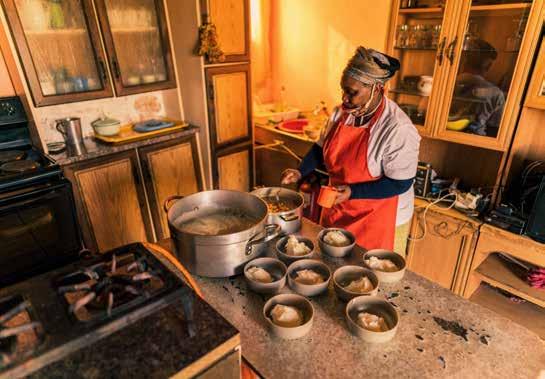
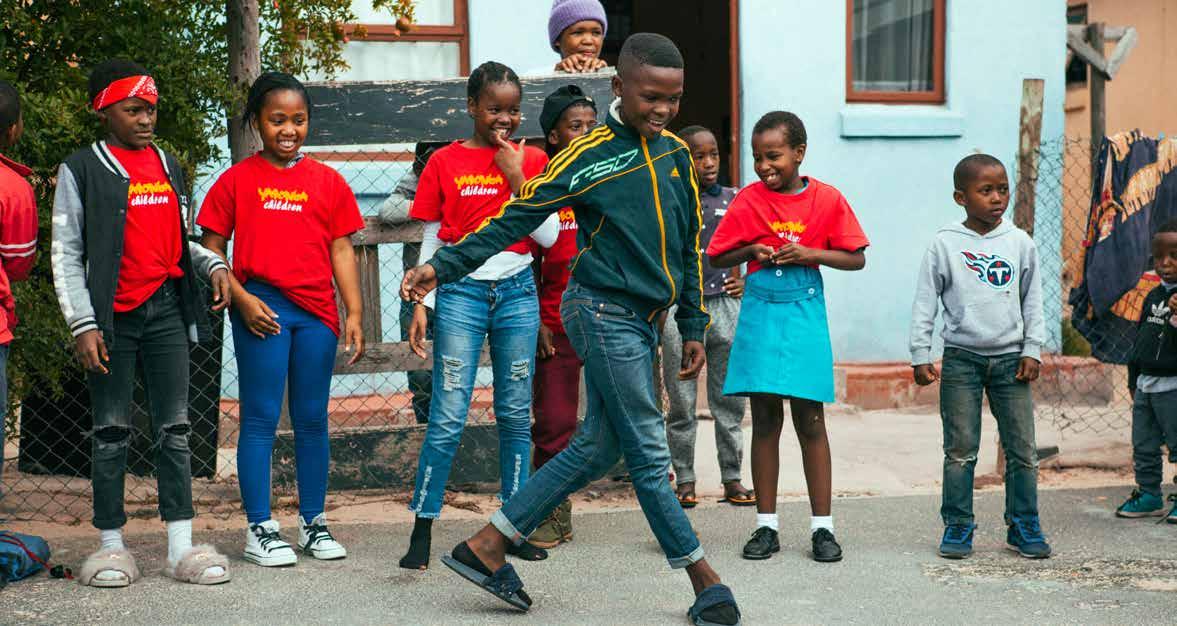
ottomans – and upholstery products. The factory also upholsters bus seats and makes corporate gifts.
These are nonspecific projects built on the principles of welfare and upliftment.
Established in 2009, Anchor of Hope runs projects that address a specifi c need in the community. The projects focus on upliftment, development, restoring dignity and humanity, and providing a sense of worthiness and purpose.
Anchor of Hope’s welfare support strategy is based on eight pillars of social impact: partnerships, welfare, skills development, the environment, individuals with disabilities, women, education and job creation.
1. The Pregnancy Crisis Centre (PCC) of Hope
PCC focuses on pregnant women dealing with unwanted or unplanned pregnancies. The centre provides a safe environment, counselling and temporary accommodation monthly for women and their newborn babies. The women receive pre- and post-natal care, counselling, emotional support and relevant information. Where women consider adoption or foster care, PCC refers them to the relevant registered institutions. Other services include limited sonars, pregnancy tests, abstinence programmes in schools, pre-and post-abortion counselling and training counsellors.
2. Community infrastructure
This social and community intervention aims to maintain, safeguard and secure South Africa’s national infrastructure. This is done by involves fixing potholes, maintaining public parks and areas, such as airport and historical sites, and providing garden services to companies.
3. Carpentry project
Our vision for this project is to create jobs and a sustainable income for all parties involved. Unemployed people are trained to manufacture and sell high-quality carpentry – built-in cupboards, office furniture, tables, headboards,
4. Men’s Shelter
This shelter focuses on the rehabilitation of men living on the streets. The main objective is to uplift and counsel them and re-establish life and other skills so they can contribute economically and socially. Various job creation projects ensure that they are reintroduced to their community with renewed or added skills.
Men with addictions are referred to qualified and registered rehabilitation centres for rehabilitation.
5. Sewing project
The education of school-going girls often suffers as many do not attend school while menstruating due to no access to sanitary products. We focus on manufacturing washable sanitary pads that are supplied to scholars using cycle kits. The project enables girls to attend school without monthly interruptions, while simultaneously creating jobs for the people who sew these sanitary pads.
6. Pop-Up
Pop-up’s various programmes teach individuals the necessary skills to find employment or start enterprises. Pop-up ensures a high-quality workforce through SETA-accredited training, basic business and life skills training. Pop-up can also be approached to act as a placement agency for entry-level employees.
Food and clothing bank
This project centralises food and clothing stores in the Bloemfontein area to reduce waste and increase social impact. The store manages all nonprofit organisations’ donations efficiently, and these organisations register with Anchor of Hope to order and collect supplies from this store. Our process includes sorting and arranging clothing according to size, gender and quality, and storing, cleaning, fixing and stock control of bedding, furniture and toy donations. The warehouse also stocks furniture, kitchenware, bedding, school clothes and stationery.
Anchor of Hope’s vision is to expand our footprint nationwide with contributions from national companies.

As many of our citizens stand in despair, leave the county or lose their motivation, we stand to save our country.
Scan this QR code to go directly to the Anchor of Hope website.

For more information:
Continuous Projects
Boeta: 083 325 1899
Pregnancy Crisis Centre of Hope
Charmain: 082 382 8020
Carpentry Project
Martin: 061 775 5050
Men’s Shelter
Jannie Louw: 060 466 1564
Sewing Project
Sonja: 082 460 7956
Community Infrastructure Projects
Jannie Coetzee: 076 473 8864
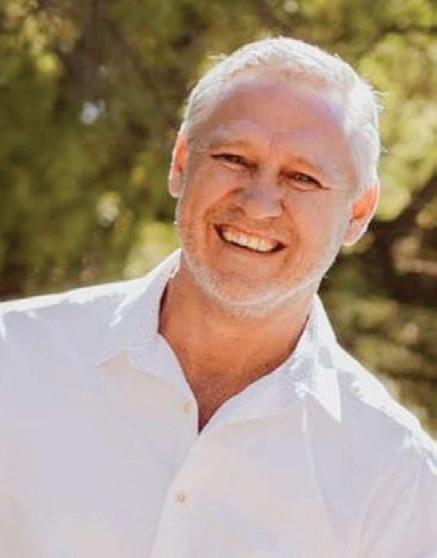
POP-UP
Marnel: 079 181 4567 www.anchorofhope.co.za
ANCHOR OF HOPE is a nonprofit organisation uplifiting communities in BloemfonteinBoeta Swart
Zackie Achmat has a long history as a social justice activist, inspired by his dad, Suleiman “Solly” Achmat, who worked in a factory despite being disabled and who, as a trade unionist and member of the Young Communist League, encouraged the young Zackie to read newspapers daily. It helped to inform his world vision.
Achmat, who turned 61 in March, is set on becoming an independent parliamentarian after next year’s general elections and is using his activist experience to help him get there. He was involved in many post-1994 nongovernmental organisations, including the Treatment Action Campaign, Social Justice Coalition, Equal Education and the AIDS Law Project.
Achmat’s activism started at an early age. He was only 14 years old in 1976 when he was arrested and jailed after setting fire to Salt River High School, where he studied. In 1980, at age 18 and after a period in detention, he was recruited by renowned activist Johnny Issel to join the ANC.
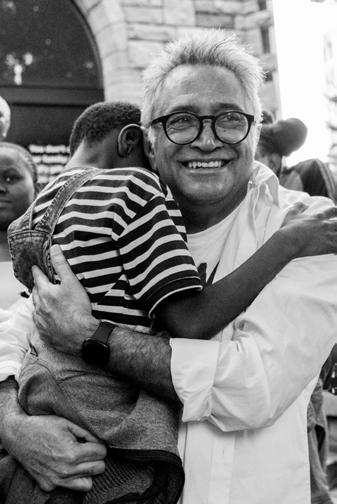
“The death of Imam Haron in 1969 played a pivotal role in my understanding of the security police’s violence. I remember watching the funeral; I would have been seven years old. He was murdered by a security policeman called Spyker Van Wyk, who later would be one of the people who tortured me,” says Achmat in an interview at his campaign offices in Church Street, Cape Town.
He says one of his few regrets is that he did not remain active in the ANC after 1994. He believes that if more people had continued to participate in the ANC, we might have avoided what he calls the “bantustanisation” of the ANC.
“I always ask people whether we averted a civil war in 1994 or whether we simply postponed it. I am of the view that we simply postponed it and are standing on the precipice of a civil war gain.
“We have to do what we always do and more. We need to ask what it is that we can do?
“We need to mobilise people to take political control of our society. Section 195 of our Constitution talks about how public administration must work: ethical, professional, economically efficient, promote confirmation, give people timely access to information, and all those things. That is the type of state we want. Participatory democracy is written into the Constitution. Our parliament and every arm in our government and organised state ought to be participatory.”
Achmat believes there is a need for a revolution to implement the Constitution. “We have to study section 195 of the Constitution and ask people which is the worst thing they deal with, SASSA or Home Affairs?

“Eskom is top of everyone’s agenda because of load shedding, but poor people feel the brunt of SASSA’s and the Department of Home Affair’s incompetence.”
Achmat says that, if he is elected to Parliament, he will remain a rebel.
“Parliament must be a tribune of the people. The elderly pensioner stripped of dignity and forced to rise early in cold or heat and suffer in queues for a meagre pension must be heard by the Standing Committee on Public Accounts (SCOPA) and the Public Service Commission.
“I will do everything to ensure that as a pensioner, she is heard – and if Parliament fails to call her to give evidence, we will together, as part of our movement #UniteBehind, create a tribune outside SCOPA’s door.
“Ministers and bureaucrats must account to her, see her face, hear her voice. The duty of every member of parliament, including myself, must surely be to amplify her voice not to hear our own. I will sign a legal contract with every community where I campaign to build power in communities to hold Parliament, the state and corporations accountable. If I achieve this, my first step to remaining a rebel will be secured.”
Achmat says if he could live his life over again, the only thing he would change is that he would be nicer to people. “I was terrible. I was often right, but I was arrogant and harsh. I spoke to people in harmful ways. That is the one thing I would change, and, of course, I would have learned to like dogs earlier.”
“PARTICIPATORY DEMOCRACY IS WRITTEN INTO THE CONSTITUTION. OUR PARLIAMENT AND EVERY ARM IN OUR GOVERNMENT AND ORGANISED STATE OUGHT TO BE PARTICIPATORY.” – ZACKIE ACHMAT
Agroup of civil society organisations has called on the government to release three large parcels of land in Cape Town – currently used by the military – for housing. They say that close to 67 000 homes could be constructed should this happen, making a significant dent in Cape Town’s housing backlog. The sites are the Ysterplaat, Wingfield near Century City, and Youngsfield military bases, which amount to over 650 hectares.
All three sites, say the group in their submission to government, are well-located, each within a 10km radius of the Cape Town CBD. They are close to existing economic and industrial nodes, offering considerable employment opportunities and implying less money spent on travel – often a huge strain on poor household budgets.
“MORE THAN 70 PER CENT OF PEOPLE IN CAPE TOWN EARN TOO LITTLE TO AFFORD A STARTER HOME. THIS IS A VERY LARGE PIECE OF LAND THAT OFFERS A CHANCE TO TAKE A CHUNK OUT OF THE HOUSING CRISIS.”
The sites are also close to various schools, social facilities and health services.
The group of organisations comprises the Community Organisation Resource Centre (CORC), the Development Action Group (DAG), the Legal Resources Centre (LRC) and Ndifuna Ukwazi. The late Professor Vanessa Watson, who was an executive member of the African Centre for Cities (ACC) at the University of Cape Town, also played an important role in the group’s submission.
Nick Budlender, a researcher at Ndifuna Ukwazi, says several factors make this an important issue. “One of the only ways to address the affordability
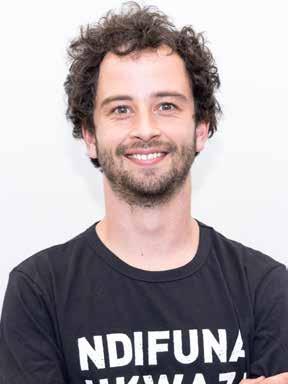
gap is to build as much housing as possible for people that are currently unserved by the private market. More than 70 per cent of people in Cape Town earn too little to afford a starter home. This is a very large piece of land that offers a chance to take a chunk out of the housing crisis.
“Our city was very intentionally designed in this completely inefficient way where everything was structured to serve the needs of a white minority and the economic activities they benefitted from. It’s created this immensely unjust, inefficient and unsustainable spatial form,” he adds.
The call for this land to be freed up for housing is not new. DAG was one of the early organisations to identify these sites in the early 1990s. In 2014, the then-mayor of Cape Town, Patricia De Lille, wrote to former president

– NICK BUDLENDERThe old Woodstock Hospital was occupied by Reclaim the City in 2017 to protest the lack of affordable housing in Cape Town.
Jacob Zuma, requesting the use of the sites for housing.
She told a City of Cape Town meeting: “The city has been trying for years to get the national government to release the land it owns in Wingfield and Youngsfield for public housing purposes.
“We have been trying to get national departments to release these parcels but to no avail. I have written directly to President Zuma, asking him to intervene.”
Adi Kumar, director at Ndifuna Ukwazi, echoes Budlender’s sentiments. He maintains that it was not just about houses, but also connecting neighbourhoods. “That would bring a very different energy. The most important thing is the existing economic centres. It would be a combination of different housing. It is not just about catering to a specific population.”
Bevil Lucas, a Reclaim the City house leader, lives at the former Woodstock Hospital. Reclaim the City occupied the former hospital and the former Helen Bowden Nurses’ Home in 2017 to protest the lack of affordable housing in Cape Town. He said the use of military land should be reconsidered for affordable housing.
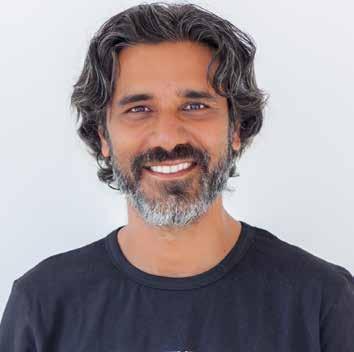
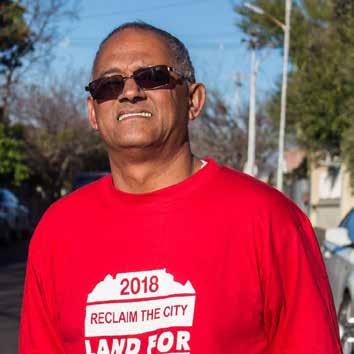
“It’s not land that has to be acquired from any private institution – it is state land. The state has a duty to address the dire housing crisis. There really is just one obstacle – the lack of political will to do what is possible.”
In its submission, the group stresses the importance of public participation should any development take place. “Meaningful engagement should be key in processes that speak to housing allocation, with important aspects thereof thoroughly debated between communities and the state entity driving the process,” it reads.
Like-minded organisation, the Housing Assembly, reiterates this. Kashiefa Achmat, chairperson of the Housing Assembly, says they work with families on the housing waiting list, some of whom have been on the list for more than 20 years. According to a recent newspaper report and information from the Housing Assembly, about 588 000 people are still on the list in the Western Cape alone.
Achmat says community input is vital for any successful housing project. “Communities are talking about the waiting list. They are frustrated and sad. They are old people, mostly backyarders, and some live in a small room. We are telling communities that we can’t fight in isolation anymore.
“Those things (housing projects) should be transparent. We see where these developments are happening, you don’t really know who the beneficiaries are. There needs to be a roll out of information sharing in communities. It’s important that these families are part of these new projects,” she says.
Much of the criticism in the submission is aimed at the Housing Development Agency (HDA). A recent press statement from the submission group said: “If there was genuine commitment and urgency that matched the scale and intensity of our housing crisis, different government departments would come together and develop a solution that puts the land to better use.”
Ndifuna Ukwazi says that while limited progress had been made they were not hopeful, considering the HDA’s track record.
Responding to emailed questions, the HDA said the criticism towards them is largely misplaced. Katlego Moselakgomo, marketing and communications at the HDA, said civil society groups “do not fully understand the role and mandate of the HDA”.
He said that the Inter-Ministerial Committee on Land Reform held a meeting on 27 February 2021, undertook a site inspection
and considered the release of the military land at Youngsfield military base, Wingfield naval base and Ysterplaat air force base.
“It has been determined that these properties are active military bases. However, it was also determined that a portion, measuring approximately 32 hectares, at the Wingfield military base, can be availed for human settlement development,” he said.
Moselakgomo added that once the requested land parcels are released to the HDA, project packaging and statutory processes in collaboration with relevant spheres of government will commence to obtain development rights on those properties.
There are reversionary clauses for portions of land in both Wingfield and Ysterplaat, initially donated to the state by the Graaffs Family Trust. Brett Moore, director of the trust, says both properties can be repurchased by government if they are no longer needed as military sites.
Moore says that they understood the sites were ideally suited for social housing. “We would want to be involved to ensure that development is done responsibly, the main goal of providing much-needed social housing is achieved and there is proper delivery thereof.”
Budlender says that the HDA is almost certainly sitting on large, underutilised parcels of land in other cities. “Unless that land is better utilised, we will continue down this path with a whole range of urban management issues. This is the Cape Town example, if we can get this right here, it would show the way for it to be done elsewhere.”
The Western Cape Department of Infrastructure says it supports the release of land for housing. Western Cape Premier Alan Winde agrees that the military land should be considered for affordable housing. “Especially considering how many people are relocating to Cape Town and the Western Cape. We need to find innovative ways to better utilise land that is not serving residents’ needs.”
The National Department of Human Settlements did not respond to requests for comment by the time of publication.
“IT HAS BEEN DETERMINED THAT THESE PROPERTIES ARE ACTIVE MILITARY BASES. HOWEVER, IT WAS ALSO DETERMINED THAT A PORTION, MEASURING APPROXIMATELY 32 HECTARES, AT THE WINGFIELD MILITARY BASE, CAN BE AVAILED FOR HUMAN SETTLEMENT DEVELOPMENT.” –
A hectare of land is the equivalent of 48 double-decker buses, parked together with no gaps. A hectare is also the size of an international rugby field. According to the Housing Development Agency, they hold approximately 86 hectares of land owned by other government development partners in the Western Cape.
Source: www.thecalculatorsite.com
KATLEGO MOSELAKGOMOAdi Kumar
Reproductive health rights and freedoms are featured twice in the Constitution of South Africa. Section 12(2)(a) provides for the right “to make decisions concerning reproduction” and section 27(1)(a) provides for the right to access to healthcare services and specifically mentions that this right includes reproductive healthcare. The emphasis on reproductive health in the Constitution stresses the views of its drafters regarding the importance of reproductive health rights and freedoms on individual autonomy and holistic healthcare.
There is an undeniable intersection between reproductive health rights and freedoms and the right to equality and dignity. If the Constitution assigns so much meaning to reproductive health rights and freedoms, why have they been so neglected in the realisation of socioeconomic rights?
A report by the Stop Stockouts Project in August 2022, revealed that 40 per cent of all medicine stockouts are contraceptive stockouts, leaving many women across the country without a medical option that allows them control over their bodies and reproductive choice.
One patient interviewed during the research was quoted: “As a young woman, having access to a variety of contraceptive methods allows me space to be independent and equal in society, with choice and control over my body. Not having the option I prefer for months at a time has not been ideal.”
Limited access to contraceptives is not the only barrier to the realisation of their reproductive health rights and freedoms that women in South Africa experience. The availability of pregnancy termination services is shockingly limited in some provinces – while a few have only a handful of second-trimester abortion facilities, others have none.
In a report released by SECTION27 and the Treatment Action Campaign (TAC), on the state of termination of pregnancy services in the Eastern Cape in 2022, it was revealed that
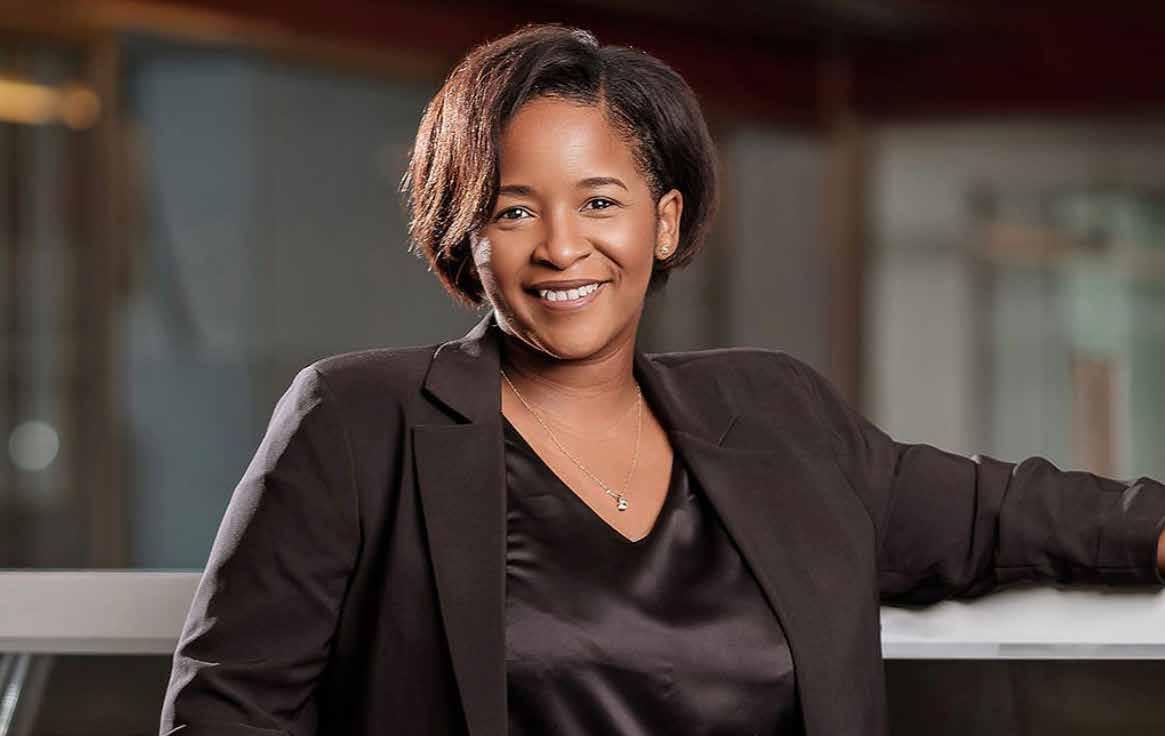
only two of the five designated second trimester facilities are operational. SECTION 27 and TAC visited 13 facilities and found that 10 of the 13 had only one termination of pregnancy provider, meaning there is no service provision if that service provider is unavailable.
Information provided to SECTION27 at Frere Hospital revealed that approximately 320 women approach the facility for pregnancy termination services monthly. However, due to limited resources, including ultrasound scans, beds and personnel, the facility can only attend to approximately 200 of these women in a month. The unfortunate truth is those who cannot obtain access to safe termination of pregnancy services in the public healthcare sector often risk their lives as they turn to illegal providers.
The right to access reproductive healthcare services protects not only a woman’s right to healthcare and bodily autonomy, but it also protects her economic and social status, and by extension her right to equality and dignity. In The Turnaway Study conducted between 2008 and 2010, researchers examined the financial difficulties faced by women denied termination of pregnancy services.
The study revealed that women who were denied termination of pregnancy services were in a worse financial position for years compared to their counterparts who had their pregnancies terminated. While this study focused on the economic consequences of a denial of termination of pregnancy services on women in the United States – the findings apply globally,
particularly in a country where inequality is high and often experienced disproportionately by women. It is no wonder that the Choice on Termination of Pregnancy Act, 1996 requires medical practitioners to examine the impact of the continued pregnancy on a woman’s economic and social circumstance as a qualifying criterion for second trimester termination of pregnancy.
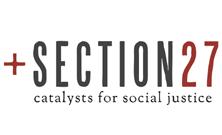
Despite the intersectionality of reproductive health, equality and dignity, the South African government has made a minimal investment in realising this right. It is evidenced by the extreme shortages in equipment, personnel, medication and designation of facilities. If reproductive rights and freedoms are to have any meaning in the lived realities of women, the South African government must prioritise access to reproductive healthcare by investing resources to ensure its realisation.
Scan this QR code to go directly to the SECTION27 website.


For more information: 011 356 4100 info@section27.org.za www.section27.org.za

THERE IS AN UNDENIABLE INTERSECTION BETWEEN REPRODUCTIVE HEALTH RIGHTS AND FREEDOMS AND THE RIGHT TO EQUALITY AND DIGNITY.
KHANYISA MAPIPA , an attorney at SECTION27, discusses why reproductive health rights and freedoms have been neglected and the need to have them prioritisedKhanyisa Mapipa

LAWSON NAIDOO, executive secretary, and DAN MAFORA, senior researcher, at the Council for the Advancement of the South African Constitution, write that the abuse of power during the state capture era provided a severe “stress test” for the Constitution and the rule of law in South Africa
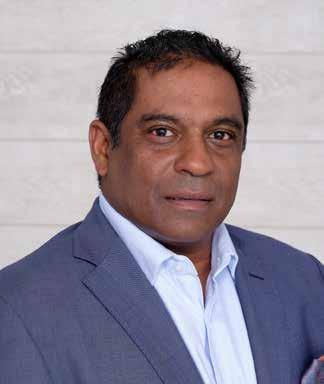

The report of the state capture commission provides insight into the Constitution’s ability to withstand such external pressures. Overall, the Constitution has proven durable and resilient and emerged intact. This is largely due to the vigilance of civil society organisations, a probing media and the independence of the judiciary. As other institutions were being hollowed out, the courts became a sanctuary for the vindication of the rule of law. The courts fearlessly upheld the Constitution against attempts to undermine or circumvent it.
The same cannot be said for Parliament. The report found there was a complete failure by Parliament to oversee the activities of the executive and hold it accountable. Instead, the majority party used its parliamentary majority to impede any attempts by members of parliament (MPs) to intervene when allegations of state capture were brought to their attention. In effect, the report found that state capture was only possible because Parliamentary oversight was ineffectual at best or nonexistent at worst. The failure to perform its oversight function was only exacerbated by government ministers’ refusal to comply with the recommendations of National Assembly portfolio committees, signalling executive contempt for the legislature.
The report also found that there was increased concentration of powers and functions in the office of the President with no accompanying scrutiny by Parliament, which left the periodic
question-and-answer sessions as the only avenue to hold the president accountable. Worse still, government was being run “off book” with decisions taken outside of formal structures such as Cabinet.
Connected to this is the accountability deficit that is engendered by the current electoral system. When the report was released, a legislative process to amend the Electoral Act of 1998 was underway. The Electoral Amendment Act of 2023 is the result of that process and seeks to include the participation of independent candidates in provincial and national elections alongside political parties. While a step in the right direction, the amended act ultimately fails to achieve genuine electoral reform.
The report also explored the vulnerability of government procurement processes to corruption and political interference in detail. An unfortunate gap in the report relates to the functioning of law enforcement and prosecuting agencies. The commission heard and received evidence on the almost total collapse in the functioning of the
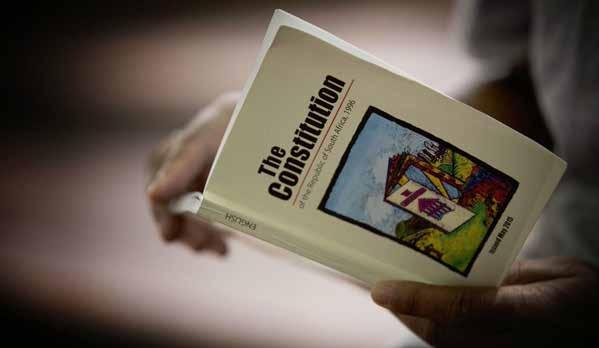
South African Police Service, the Hawks, the State Security Agency, the Independent Police Investigating Directorate and the National Prosecuting Authority. Undoubtedly, these institutions are key to securing accountability for state capture crimes. The report does not deal with these challenges, leaving the institutions to navigate their way out without a roadmap.
The commission recommended that Parliament look at possibly creating a committee to oversee the Presidency and appointing opposition party MPs as committee chairpersons to ensure the majority party does not use its numbers to render oversight an ineffective rubber stamp of executive conduct. The former recommendation has not yet been adopted, pending a study tour to the United Kingdom, while the latter recommendation has been rejected.
It also recommended that Parliament consider enacting a constituency-based electoral system to reduce the accountability deficit between MPs and voters and whether the president should be elected directly by voters instead of the National Assembly. An electoral reform panel will be appointed to explore broader electoral reform beyond next year’s elections. A Public Procurement Bill that will overhaul procurement and tender processes is reportedly on its way to Parliament.
While these are encouraging developments, Parliament still does not appear to appreciate its constitutional role and seems unwilling to do anything to address the weaknesses identified in the report, raising the spectre of repeating the errors in the future.
As the report demonstrates, large-scale failure to adhere to the Constitution underlies state capture. The Constitution remains our sharpest tool against impunity, unchecked political power and rugged self-interest. For as long as we have an independent judiciary committed to upholding it, we should vehemently resist any attempts to weaken it.
THE REPORT FOUND THAT STATE CAPTURE WAS ONLY POSSIBLE BECAUSE PARLIAMENTARY OVERSIGHT WAS INEFFECTUAL AT BEST OR NONEXISTENT AT WORST.
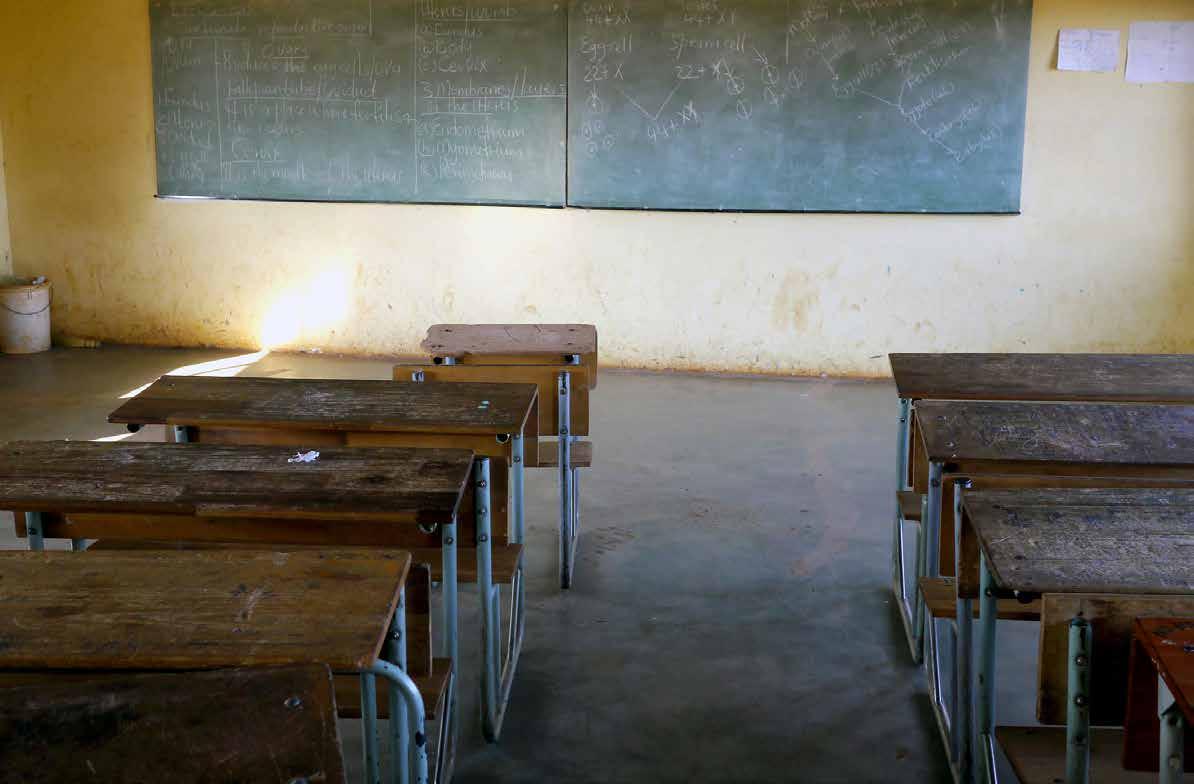
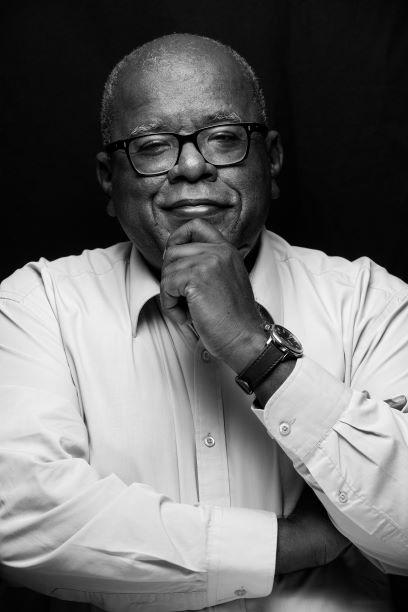
Adifficult question I am often asked by thoughtful people is, Why? A question prompted by situations in education that make no sense to the rational mind. Situations such as the corruption and breakdown in food delivery to rural schools in one of our largest and poorest provinces where those in charge know full well that children will go hungry without that one school meal daily. Who could be so callous to allow this?
Situations such as when an offer was made by a major company to replace pit latrine toilets in the rural schools its employees’ children attended, being told that those holes in the ground will stay unless the money for the flush toilets was paid to “the community” to do it themselves. The service would cost the schools nothing; the engineers and builders are available for free. Who could be so selfish and short-sighted to disallow this right to dignity?
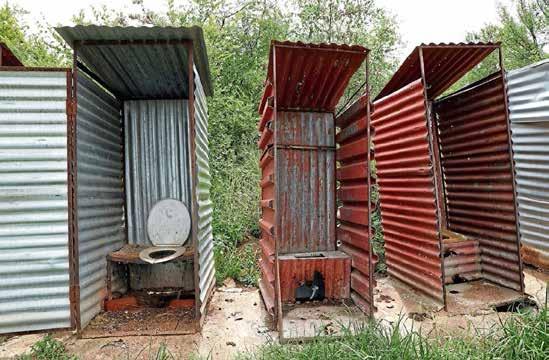
The question would be asked of me with bewilderment and dismay. Why does this happen?
I think that almost 30 years into our democracy, we can now put that facile answer to bed, namely, the lack of capacity. Of course, there is a lack of high-level technical and managerial expertise to run anything. But that “lack of” skills and competence can be resolved through training.
As I explained in my book, Corrupted: A study of chronic dysfunction in South African universities, alongside capacity problems lies an equally and more difficult problem – integrity. That value-set by
which people steer their lives, that inner conviction that recognises the difference between right and wrong, that intuitive sense that as a leader, you are there to serve, not be served. When integrity is compromised, you can have all the capacity in the world, but will be stripped bare of the vital resources (food, clean water, healthcare, school nutrition, train transportation, and so forth) needed for a basic, functioning society.
Here’s the deeper puzzle. Simply observing the absence of integrity does not explain why those steering values are not there in the first place. Many other societies are in even greater poverty and distress than South Africa, but the elites and ordinary people do not engage in corruption on the scale that came to be called state capture. Poverty does not explain the absence of integrity; many of
us grew up struggling, but with a strong sense of right and wrong. Nor can the wholesale looting of state resources be dismissed in reference to the historical traumas inflicted on us by colonialism and apartheid.
While our unequal and traumatic history certainly lays the foundation for corruption, the past is not an inevitable explanation for the present. What fuels widespread wrongdoing in South Africa and the breakdown in basic integrity is the pervasiveness of corruption in the country’s leadership. From the beginning of our once-promising democracy, the signs were there that we were about to enter a feeding frenzy as the new elites (black nationalists) replaced the old (white nationalists).
Prof Jonathan JansenA statement such as “we did not struggle to be poor” coming from elites in politics with their hands in the tills meant only one thing – get what was denied to you by any means possible. State capture, led by former President Zuma, saw corruption on an industrial scale as an estimated R1-trillion left the fiscus. Ordinary citizens bore witness and the lesson was clear: if our leaders see nothing wrong with fleecing the state, then “it’s our turn to eat” – a phrase heard both in the halls of power and the streets of Mzansi. The result at the top? Virtually every state-owned enterprise is held afloat by billions of rescue rands every year because of incessant looting from the top down. The result at the bottom? Ordinary people literally lift the tracks off the railway lines to sell these materials for a handy income. If the problem at the heart of the collapse of integrity is leadership, then restoring this valuable asset is quite simply the replacement of corrupt leaders at the top. That is possible, but through a different kind of politics that convinces ordinary people they have been scammed and will continue to be unless these leaders are removed.
FROM THE BEGINNING OF OUR ONCE-PROMISING DEMOCRACY, THE SIGNS WERE THERE THAT WE WERE ABOUT TO ENTER A FEEDING FRENZY AS THE NEW ELITES (BLACK NATIONALISTS) REPLACED THE OLD (WHITE NATIONALISTS).
As we continue to work towards a world where girls, women and LGBTQIA+ persons can thrive, we believe it is important to create a stimulating and nourishing space for young leaders to come together, connect meaningfully, learn with each other and collaborate for collective impact.
We recognise that disrupting and transforming oppressive systems to bring about the liberation of gender minorities requires change at the structural and systemic levels and in ourselves. As such, we are proud to announce the Soul City Feminist Leadership and Activism Centre (FLAC) as our latest flagship programme that is intentionally intersectional and promotes indigenous feminist knowledge and practices through a participatory and experiential approach to teaching and learning.
FLAC comes at a pivotal moment in South Africa, where there is a collective push for feminist approaches to gender equity and social justice.
In partnership with the Ford Foundation, we’ve developed the fellowship to create a space for learning, healing, communicating and working creatively and collaboratively to raise the feminist consciousness of young people.
The fellowship is designed for young people between the ages of 18 and 25 who self-identify as woman or gender diverse, with a matric or NQF equivalent, a track record of activism and demonstrating a commitment to social justice and feminism.
Since the launch of the fellowship in August last year, 20 carefully selected emerging leaders from across all nine provinces in South Africa are participating in a hybrid format of learning consisting of in-person residential sessions, a series of online workshops with feminists and experts, working on individual projects to address their communities’ needs and tailored mentoring support.
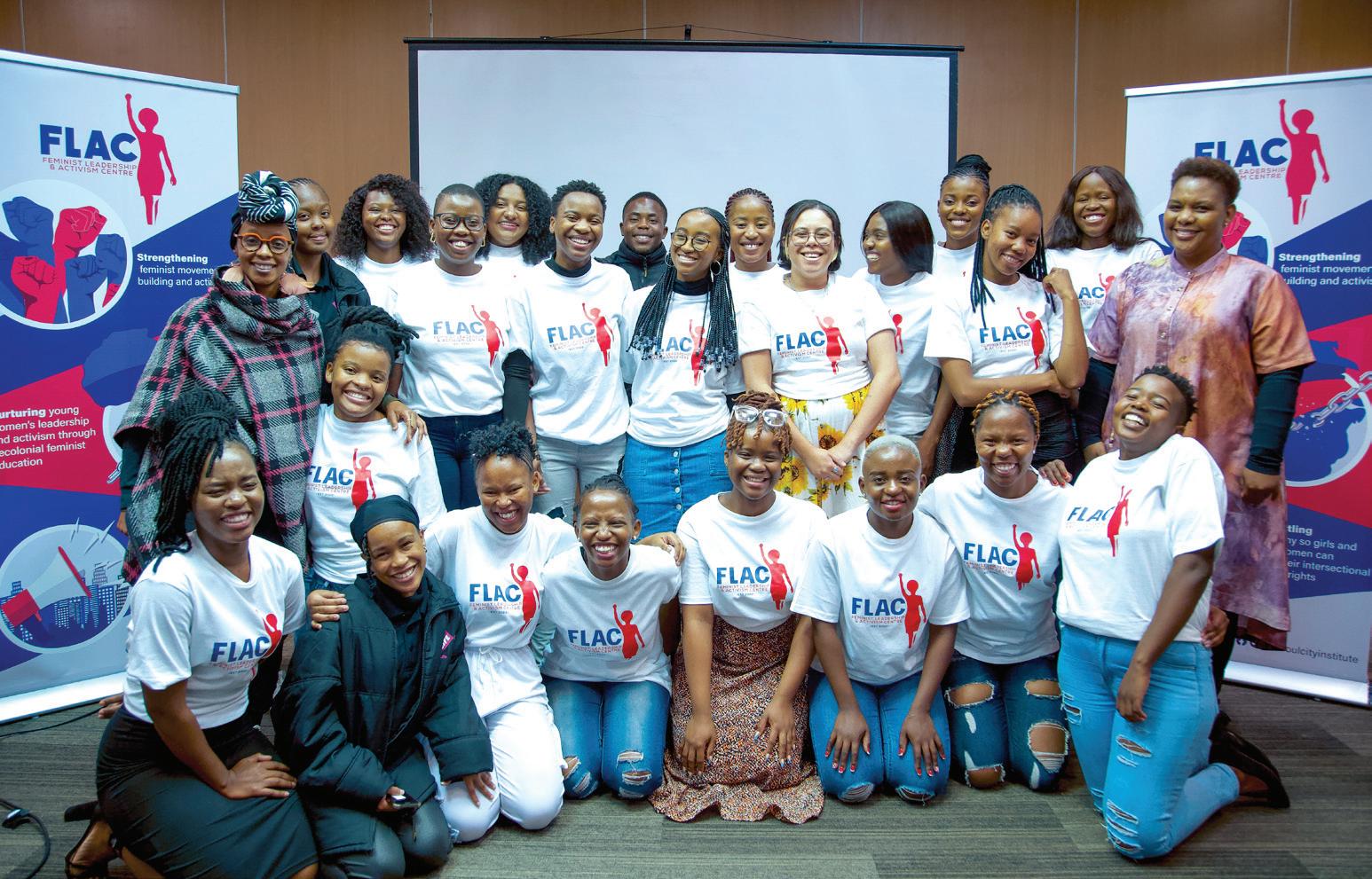
After almost 30 years of campaigning and advocating for the health and wellbeing of marginalised communities, the Soul City Institute for Social Justice is, now, more than ever before, deliberate and unapologetic about our feminist agenda, writes CEO
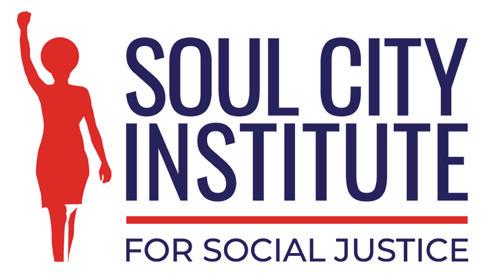 PHINAH KODISANG
PHINAH KODISANG
The fellows are archiving their experiences through blogs. We are elated to witness their growth and read about the impact of their participation in the fellowship. “After the sessions, I could boldly say I am a feminist! Maybe a certain different kind, but a feminist with an urge to stand up and fight for women’s rights, to speak out where necessary,” Makhosemvelo Mthembu, one of the fellows, reflects. Mthembu says she initially felt intimidated and unsure of her place in the room, but has since found her footing.
Mthembu is one of three other fellows currently placed at Soul City Institute for the second phase
We have dedicated the past eight years to working with girls and young women through our Rise Clubs across all provinces. FLAC is our new investment and a further commitment to our vision and mission.
of the programme, where the fellows get to join an organisation of their choice to receive on-the-job training and build their capacity to develop and implement their individual projects.
Another fellow from the Western Cape, Libongwe Shwane, is passionate about menstrual health and has been hosting workshops to educate young people in her community about menstruation. She is using her time at Women at the Well Organisation to learn about resource mobilisation to achieve her dream of making menstrual health management accessible while addressing other issues relating to menstruation faced by her peers.
We are grateful to the friends of Soul City that are hosting the fellows at their respective organisations and collaborating with us to harness the potential of these young feminist leaders.
FLAC cements Soul City Institute’s feminist agenda. The strategic decision to start the centre is to support young women through capacity building, mentorship and resourcing to increase the feminist movement across South Africa. Through FLAC, we’re building feminist consciousness by giving young women resources that enable them to lead their activism, advance their human rights and build the solidarity that brings the needed social change in their communities and across South Africa.
We have dedicated the past eight years to working with girls and young women through our Rise Clubs across all provinces. FLAC is our new investment and a further commitment to our vision and mission. We intentionally dismantle the intersecting systems that keep young women subdued and prevent them from reaching their full potential and thriving. We want young women to have the tools and strategies to enable their activism and their futures.
Scan this QR code to go directly to the Soul City website.

For more information:
www.soulcity.org.za
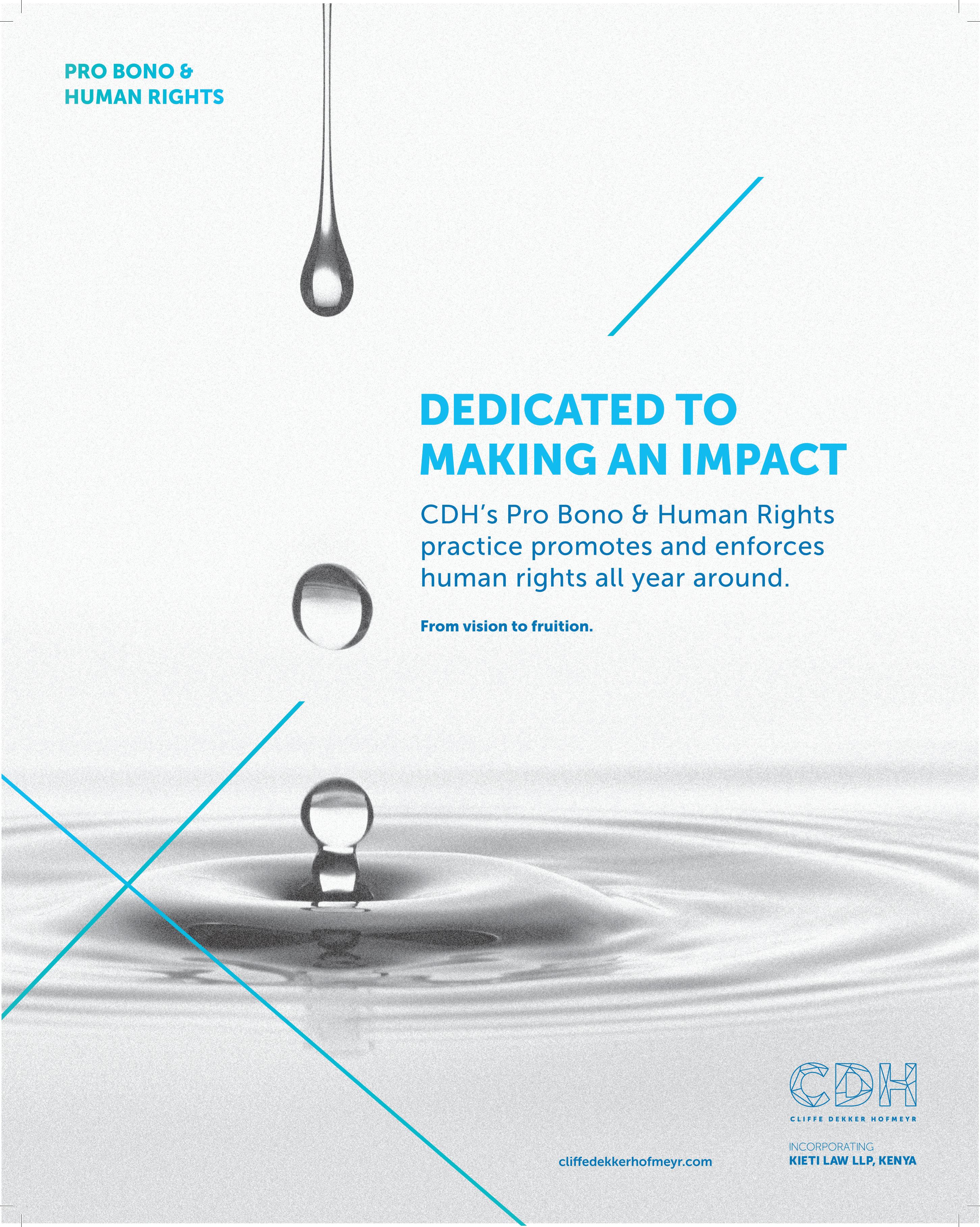
PROTEC is a 41-year-old national nonprofit organisation that provides educational support in STEM (science, technology, engineering, maths) subjects to high school students from historically disadvantaged areas, empowering them to pursue successful careers in STEM fields.
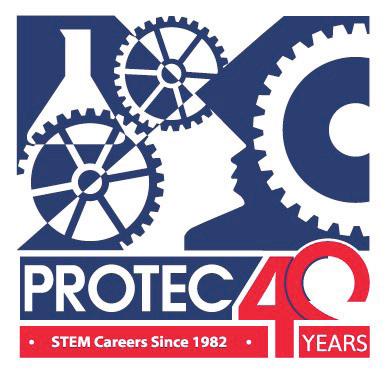
PROTEC was started in 1982 in Soweto by visionary engineers and activists to provide opportunities for apartheid’s marginalised black high school students. Throughout the four decades, PROTEC has been wholly committed to social justice education –advocating for a society where people can develop and reach their full potential, while working fairly and effectively with others.
Few disadvantaged scholars pass or even write key gateway matric subjects of maths and science. This means they tend to finish their school years with no opportunity to pursue careers in STEM fields. PROTEC’s vision has always been to empower those young South Africans with the requisite potential by providing them with optimal education and the life skills to succeed in STEM-based careers.
PROTEC comprises a head office in Johannesburg, six branches in KwaZulu-Natal, one in Soweto and one in Nelspruit, Mpumalanga. Projects, traditionally sponsored by organisations committed to equal opportunities, are based in
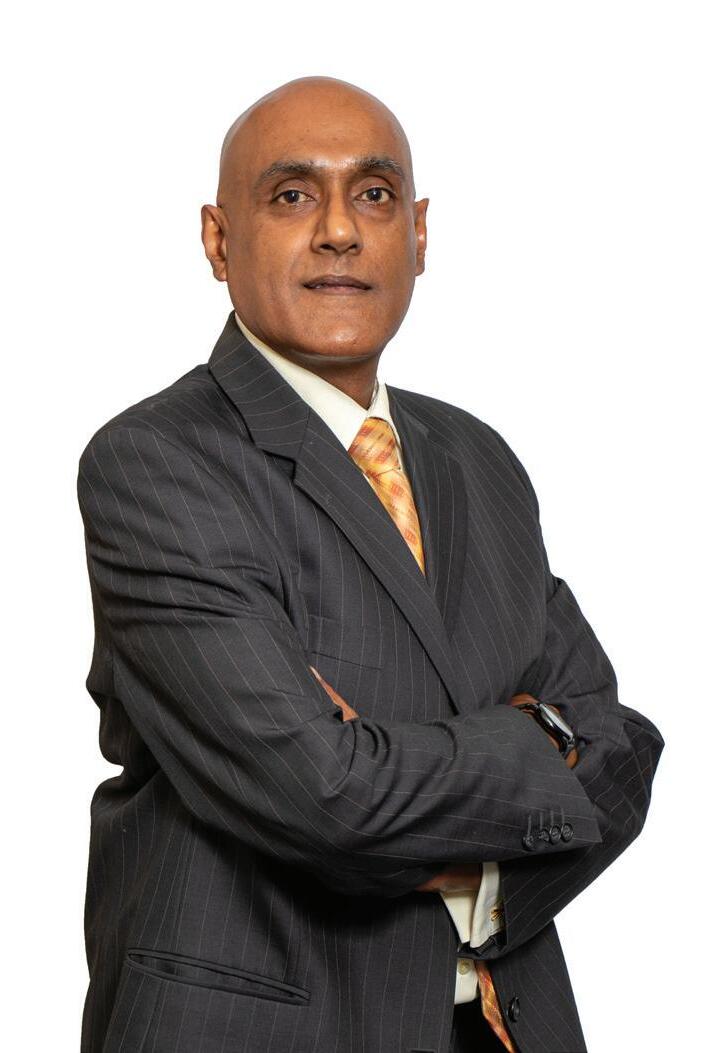
Gauteng, Eastern Cape, and Limpopo. PROTEC also runs an excellent post-school programme for PROTEC learners in tertiary education and beyond into their working life as PROTEC alumni.
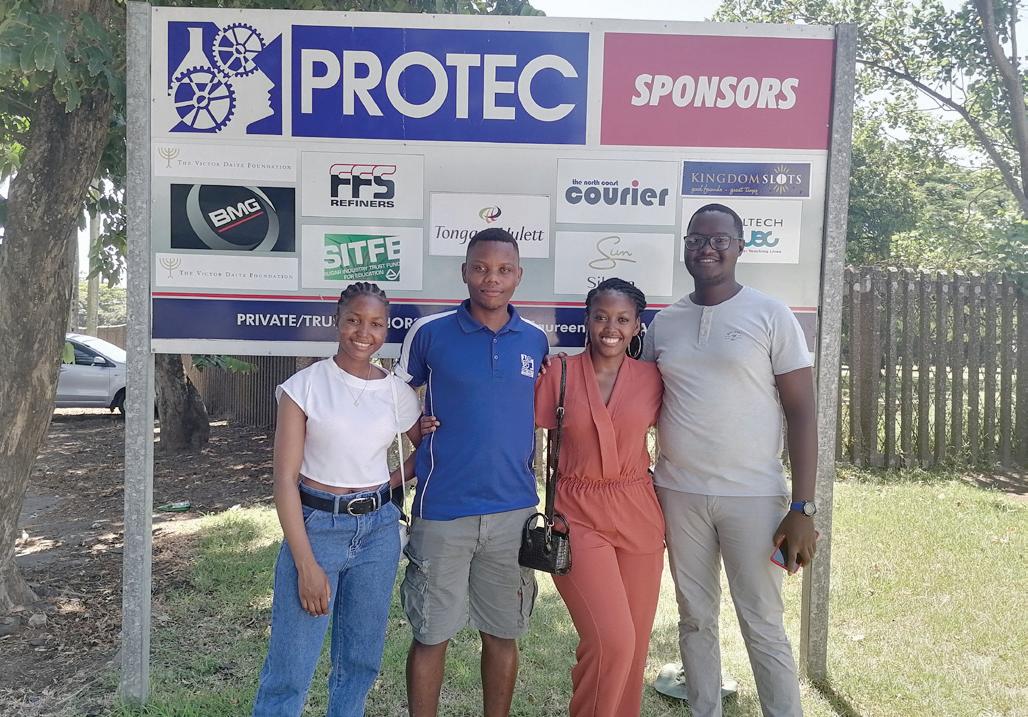
• More than 30 000 disadvantaged learners have successfully passed through the PROTEC programme since 1982 and are now qualified engineers, doctors, scientists, technologists, actuaries, educators and other professionals.
• A matric pass rate that is on average 20 per cent higher than the national average and a consistently high bachelor pass rate.
• More than 75 per cent of PROTEC learners pursue engineering, science or technology courses at the tertiary level.
The PROTEC matric class of 2022, which accommodated 203 matriculants, achieved a 100 per cent matric pass rate, an 83 per cent bachelor pass rate and 293 distinctions in total. This result is particularly noteworthy because these 2022 matriculants experienced the full effects of the pandemic in their crucial Grade 10 and 11 years in 2020 and 2021, and embarked on their matric year under COVID-19 conditions.
PROTEC is very proud of its students, facilitators and branch staff who all put in the hours under often very trying conditions with connectivity and available devices issues, but came through victorious.
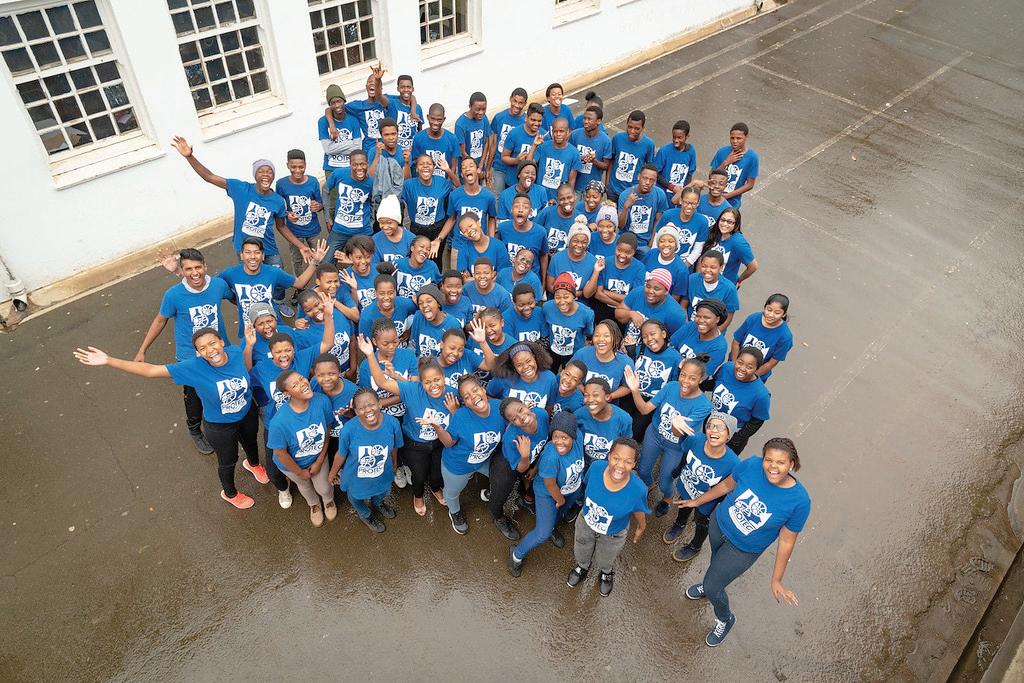

When the COVID pandemic hit South Africa in March 2020, PROTEC’s response was immediate. PROTEC quickly adapted its resources and equipped its benefi ciaries and facilitators to cope with the lockdown restrictions. This helped to create an improved hybrid learner excellence programme model that was introduced in 2021 and includes an e-learning platform and deploying tablets, data and power banks where needed.
PROTEC’s ongoing success and future growth depend on support from organisations that share the organisation’s vision to enable young people with potential to succeed in STEM careers. PROTEC has enjoyed strong partnerships with like-minded companies over the decades, and looks forward to building relationships with many more – PROTEC is highly scalable and the greater its funding base, the more learners it can reach.
For more information: julie@protec.org.za. www.protec.org.za
Some of our partners : Through individual growth to an equitable & inclusive society Mentorship for Social Justice
Some of our partners : Through individual growth to an equitable & inclusive society Mentorship for Social Justice
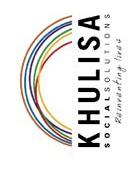
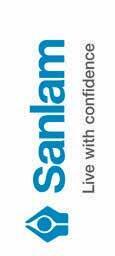




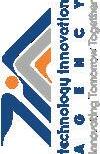



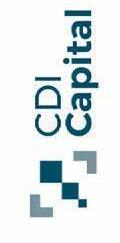

Mentors are uniquely positioned to empower their mentees to grow and contribute towards an equitable and inclusive world. To learn more, please contact Dave Wilson
Mentors are uniquely positioned to empower their mentees to grow and contribute towards an equitable and inclusive world. To learn more, please contact Dave Wilson at dave.wilson@mentorshipmovement.co.za
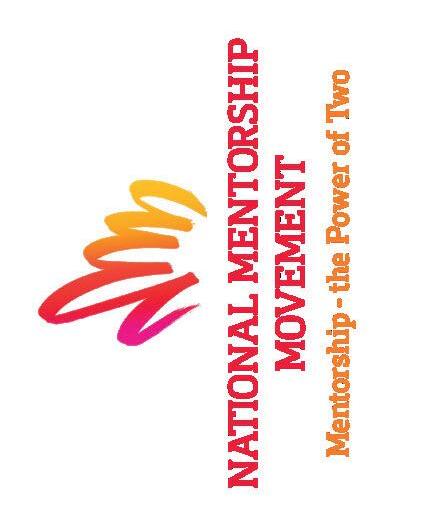


dave.wilson@mentorshipmovement.co.za

